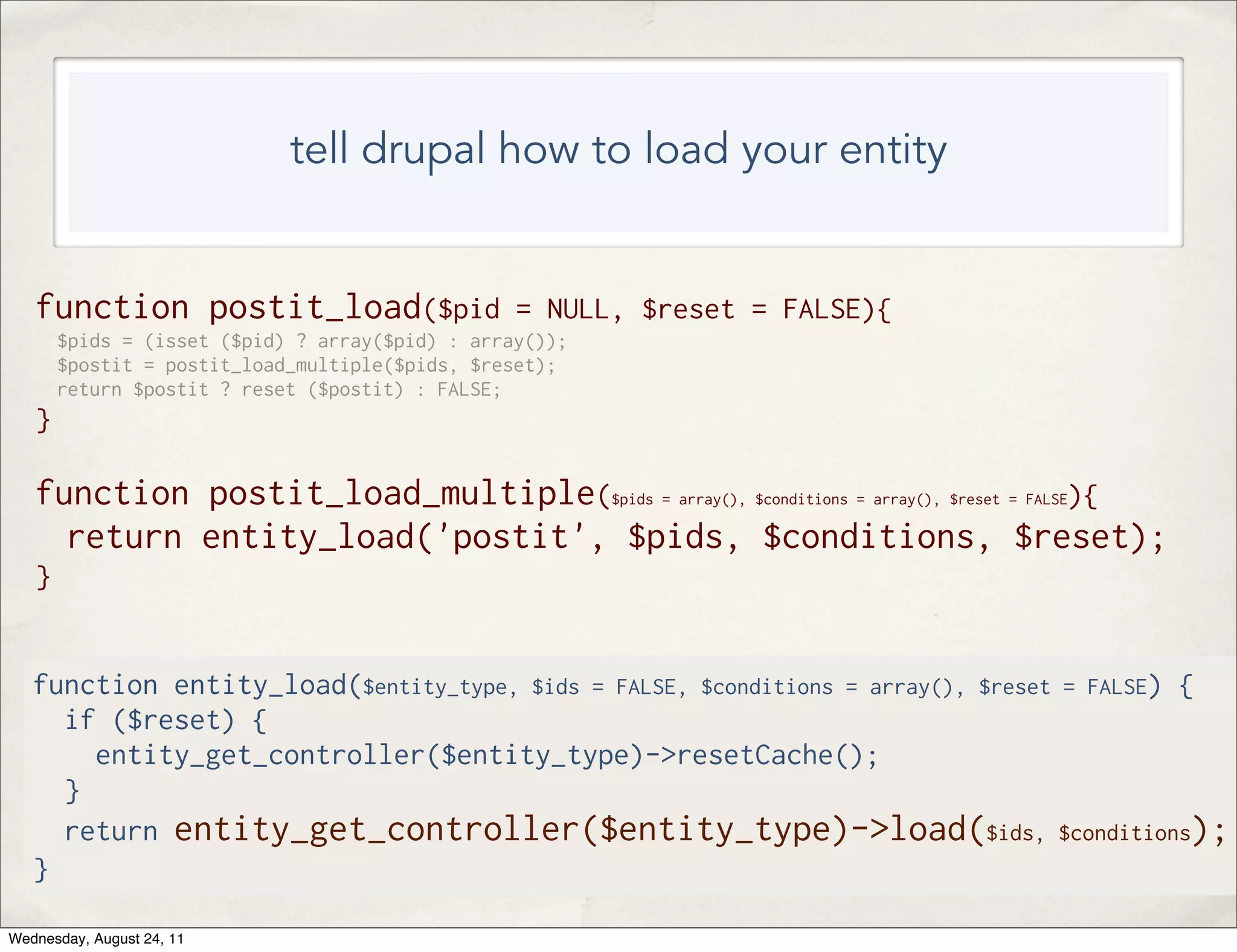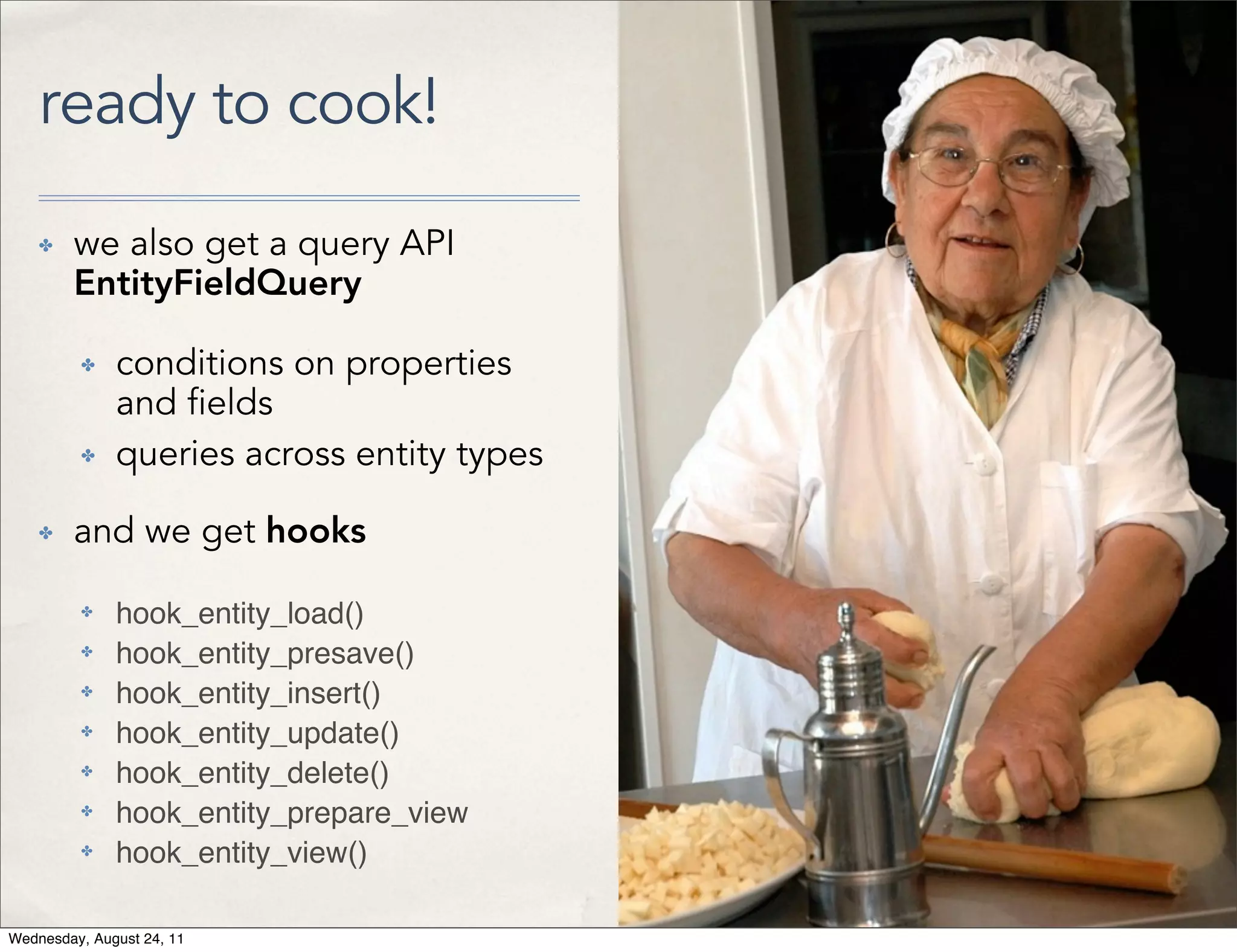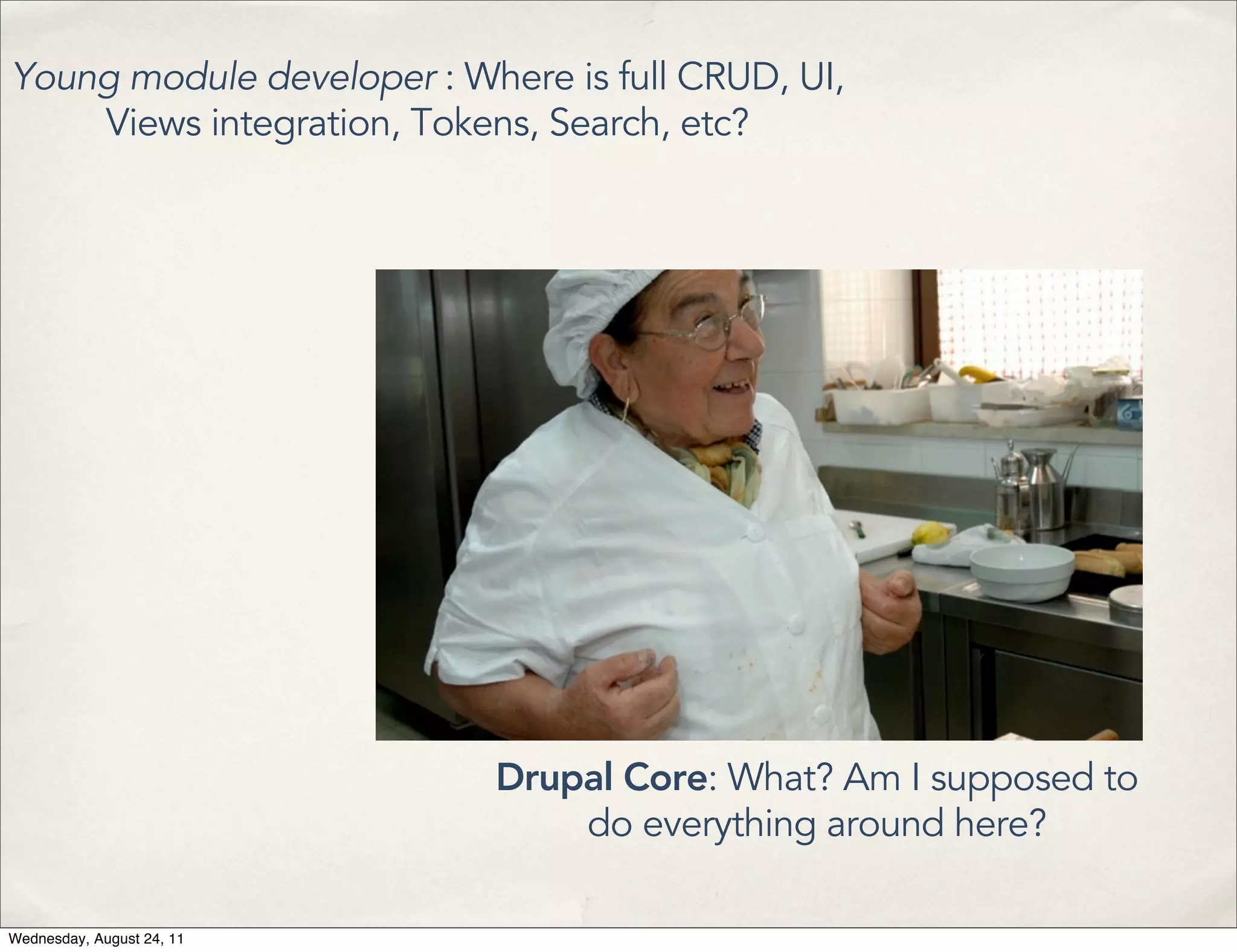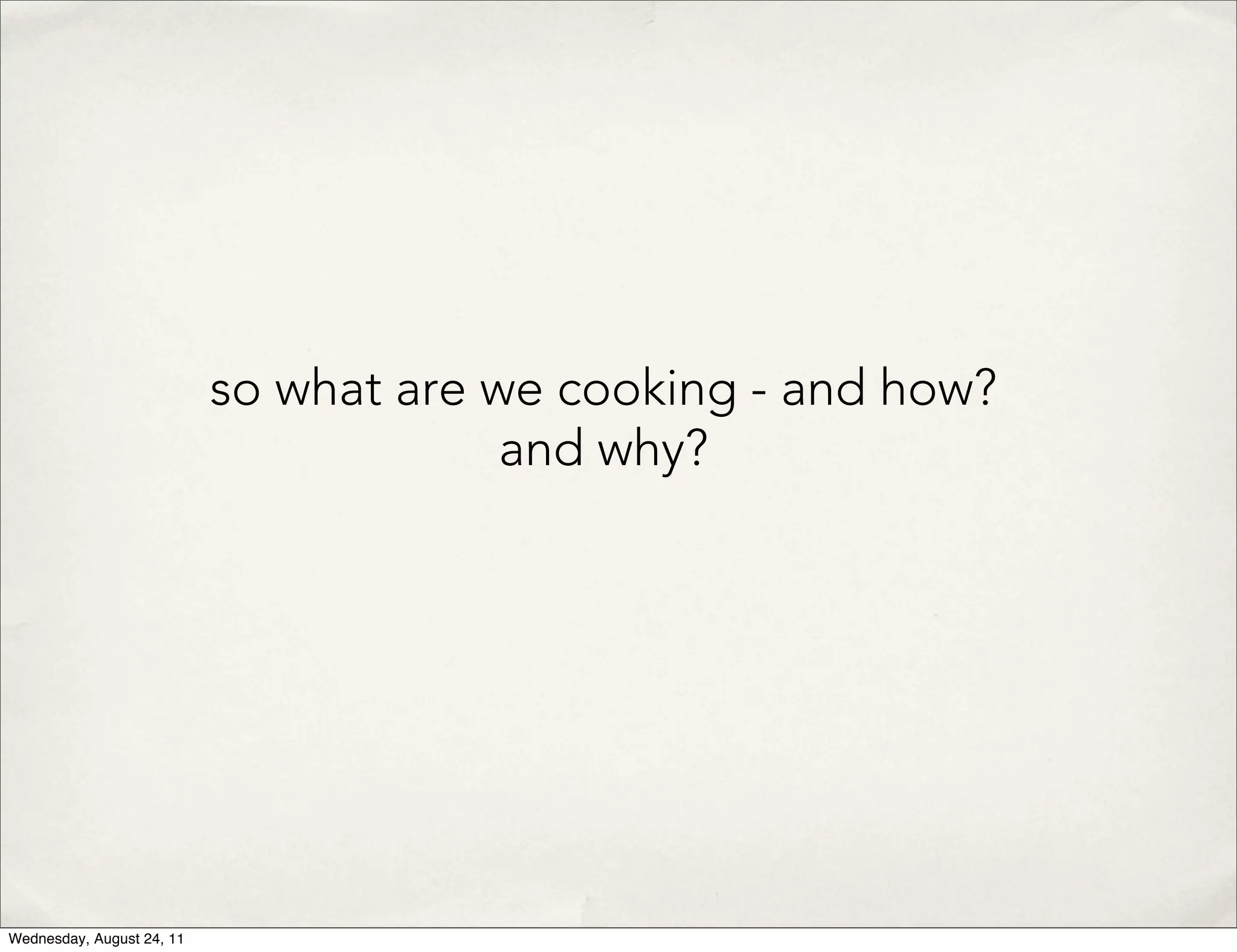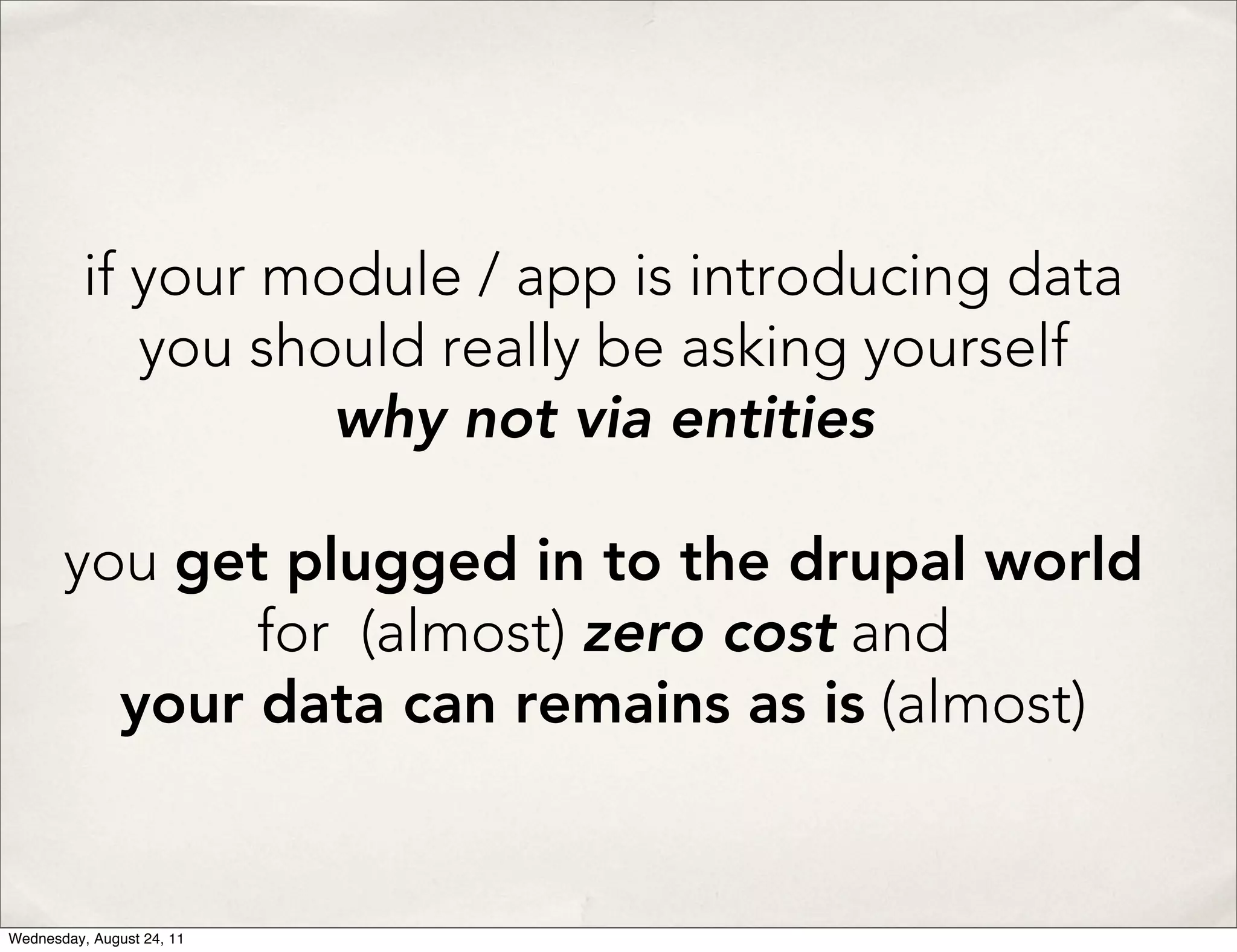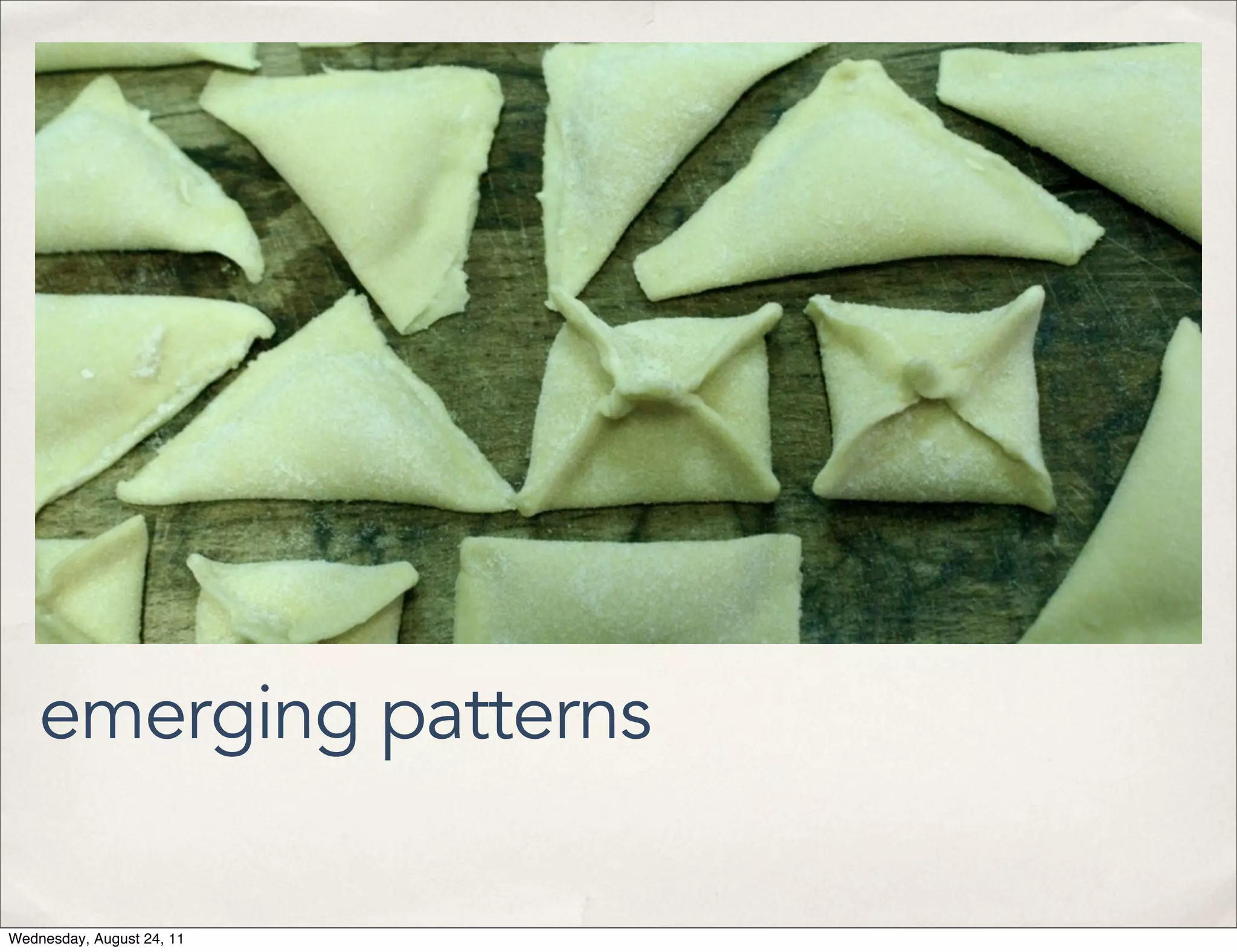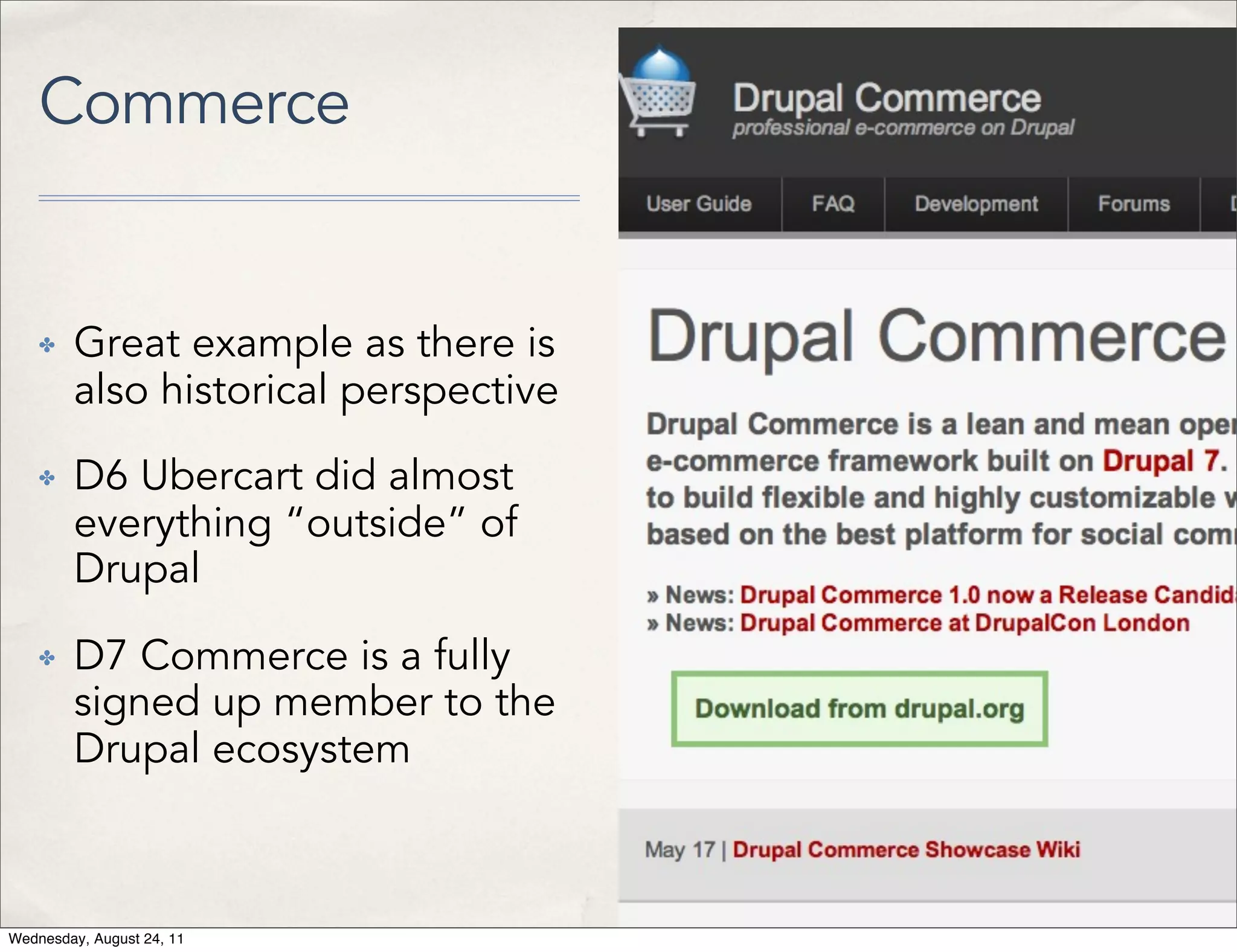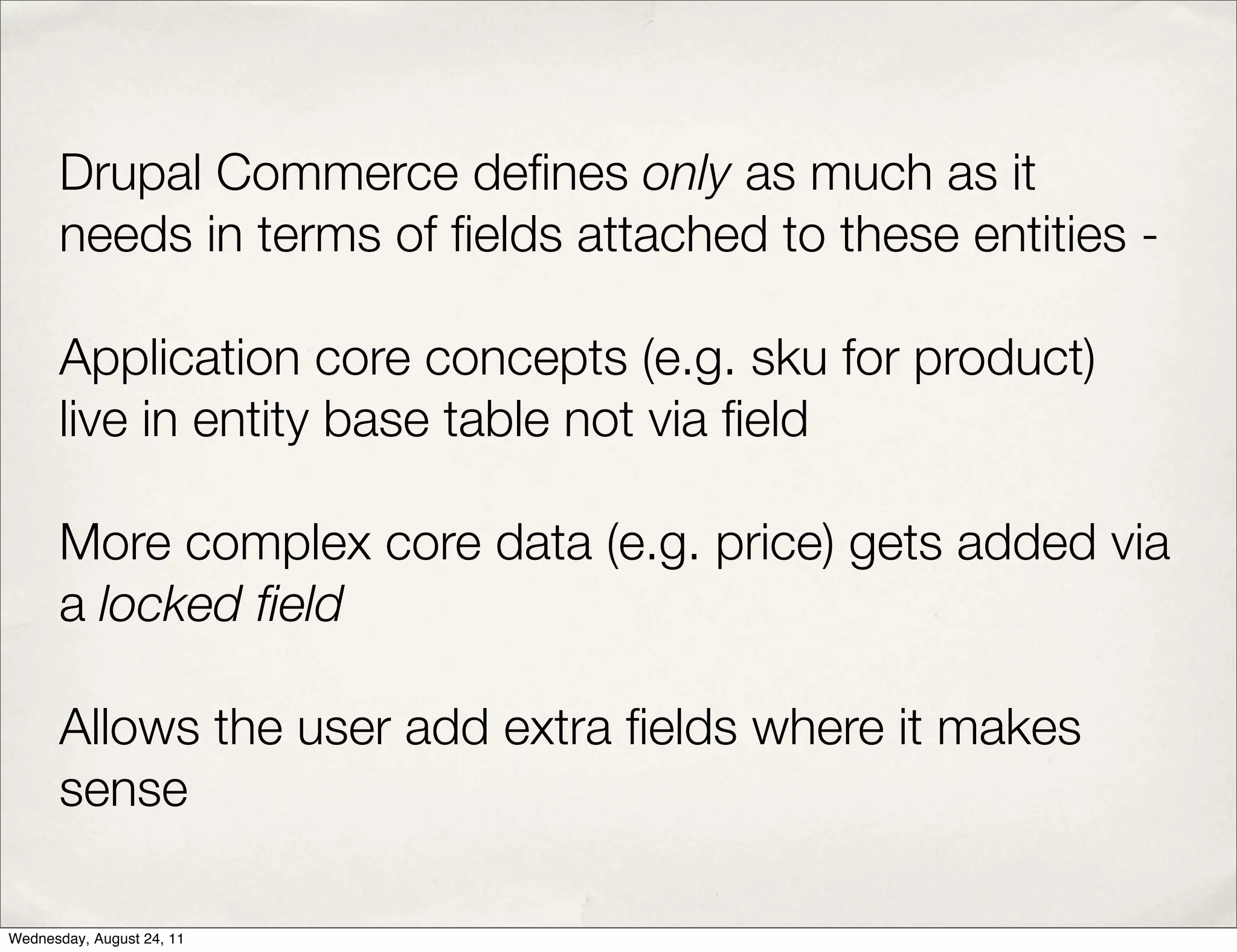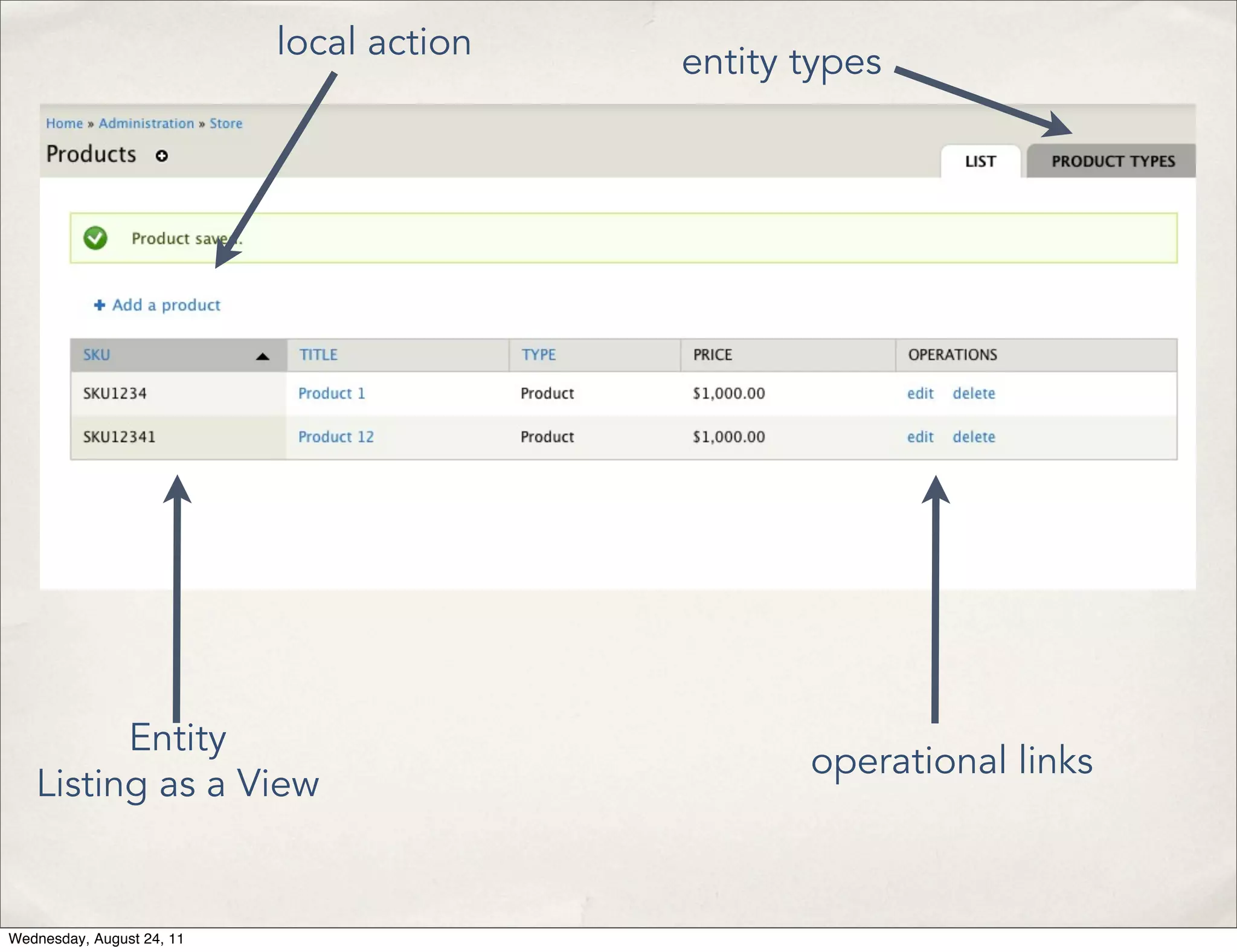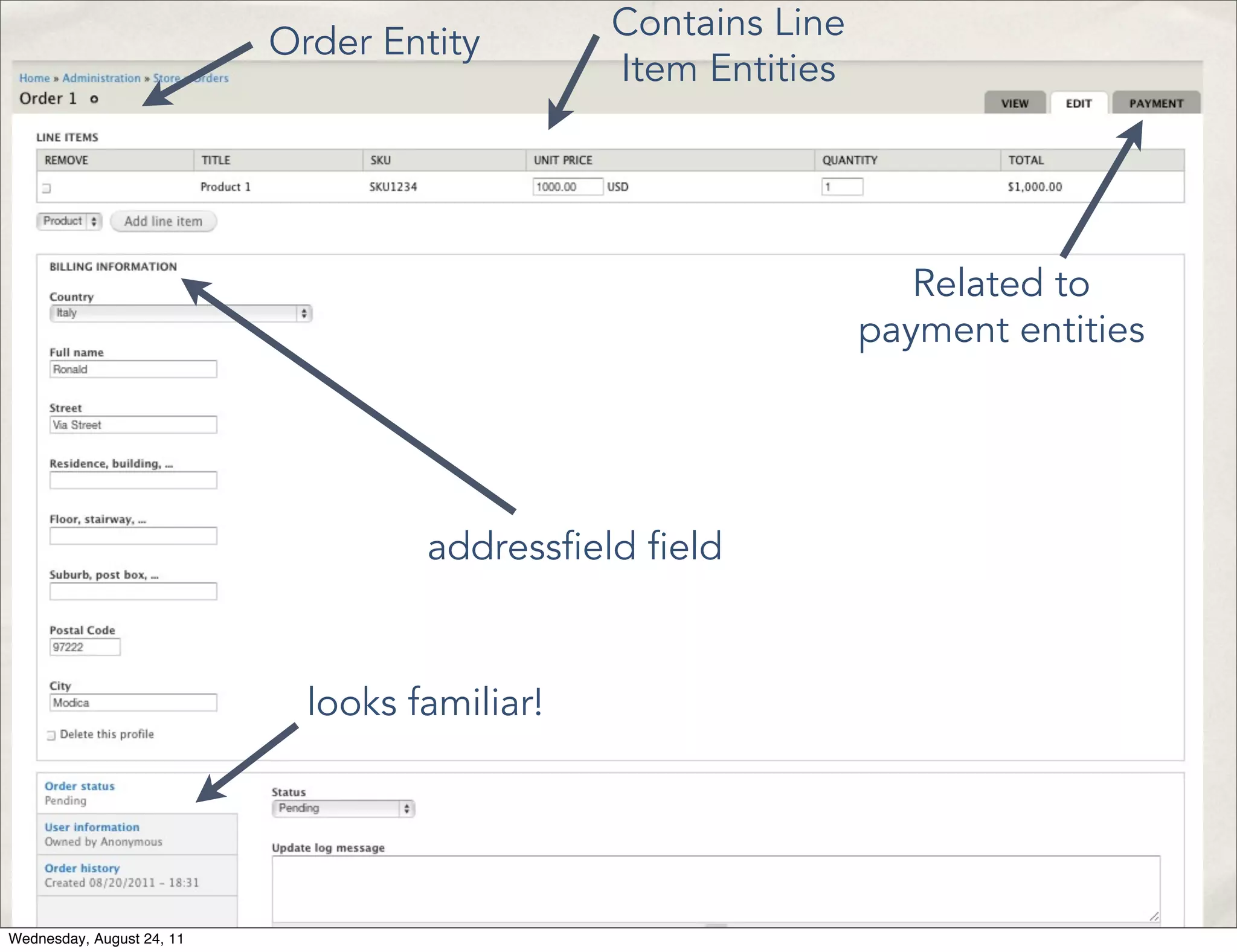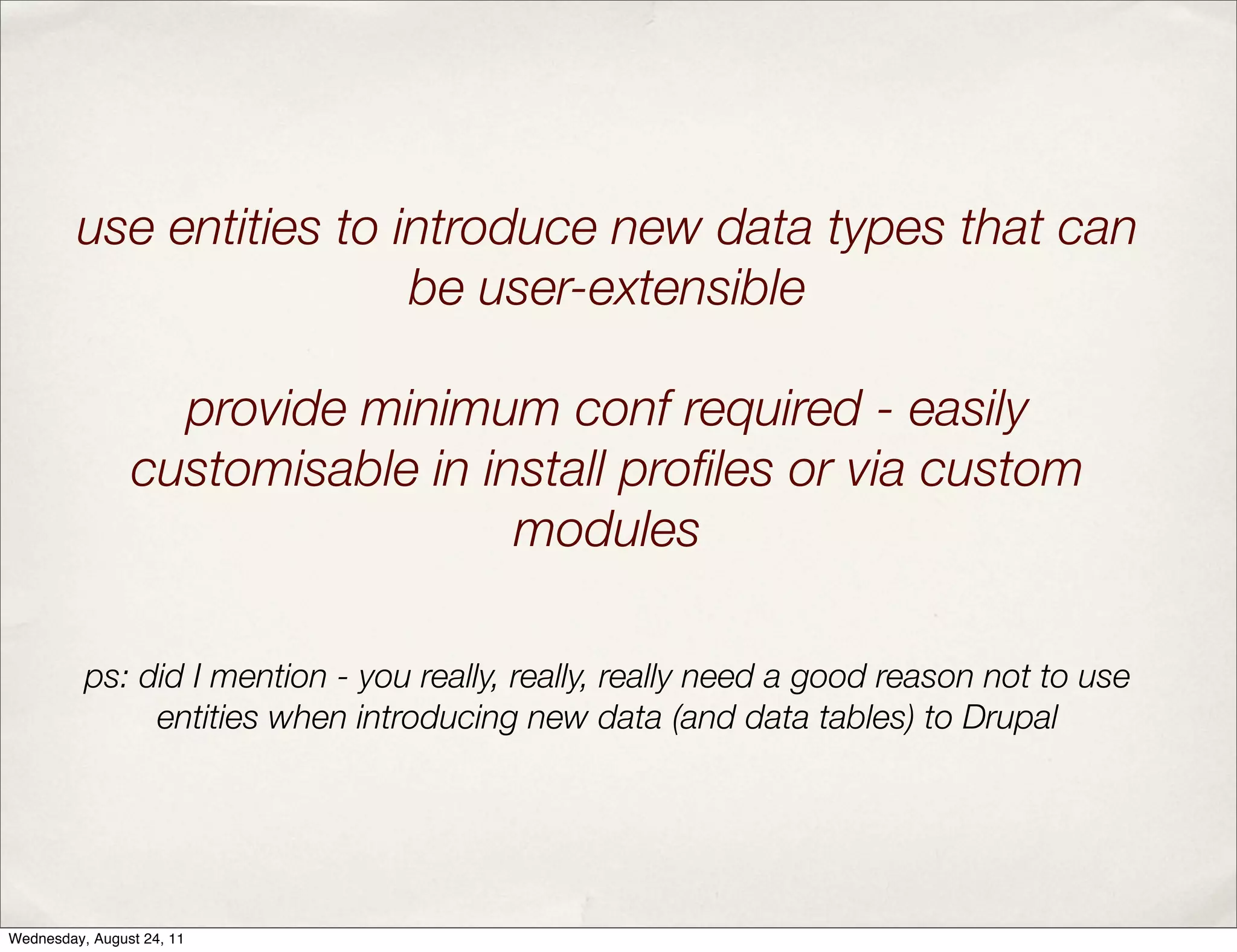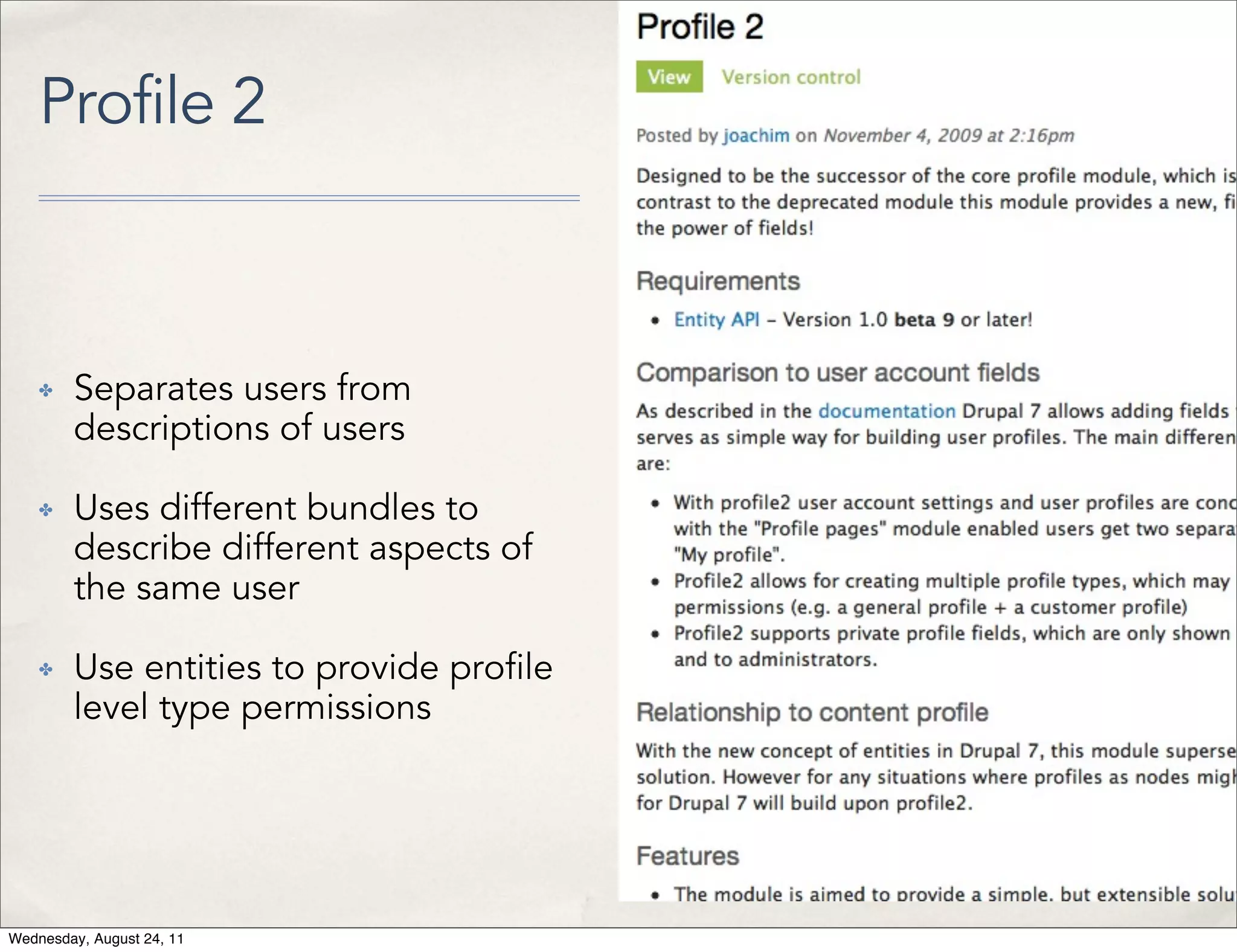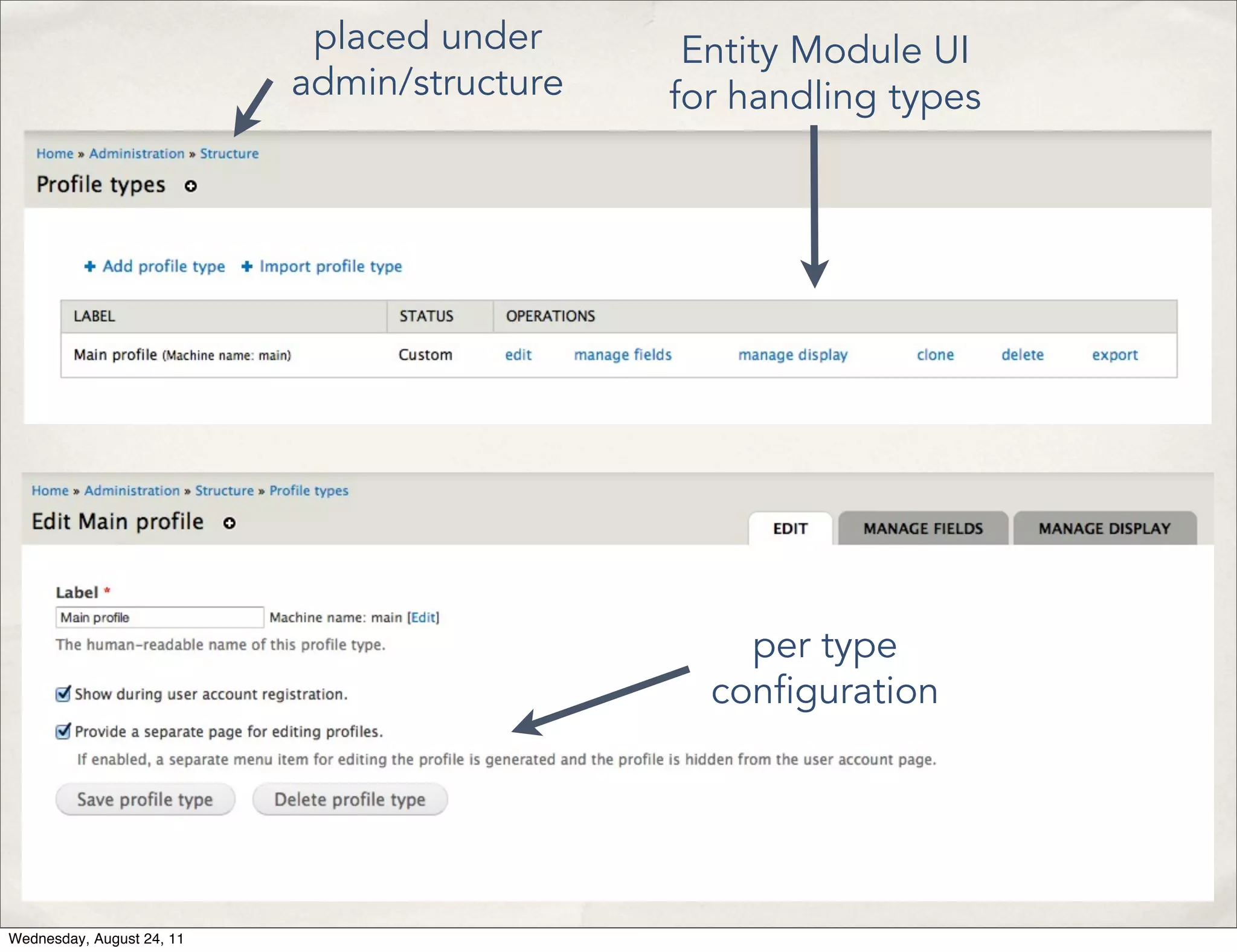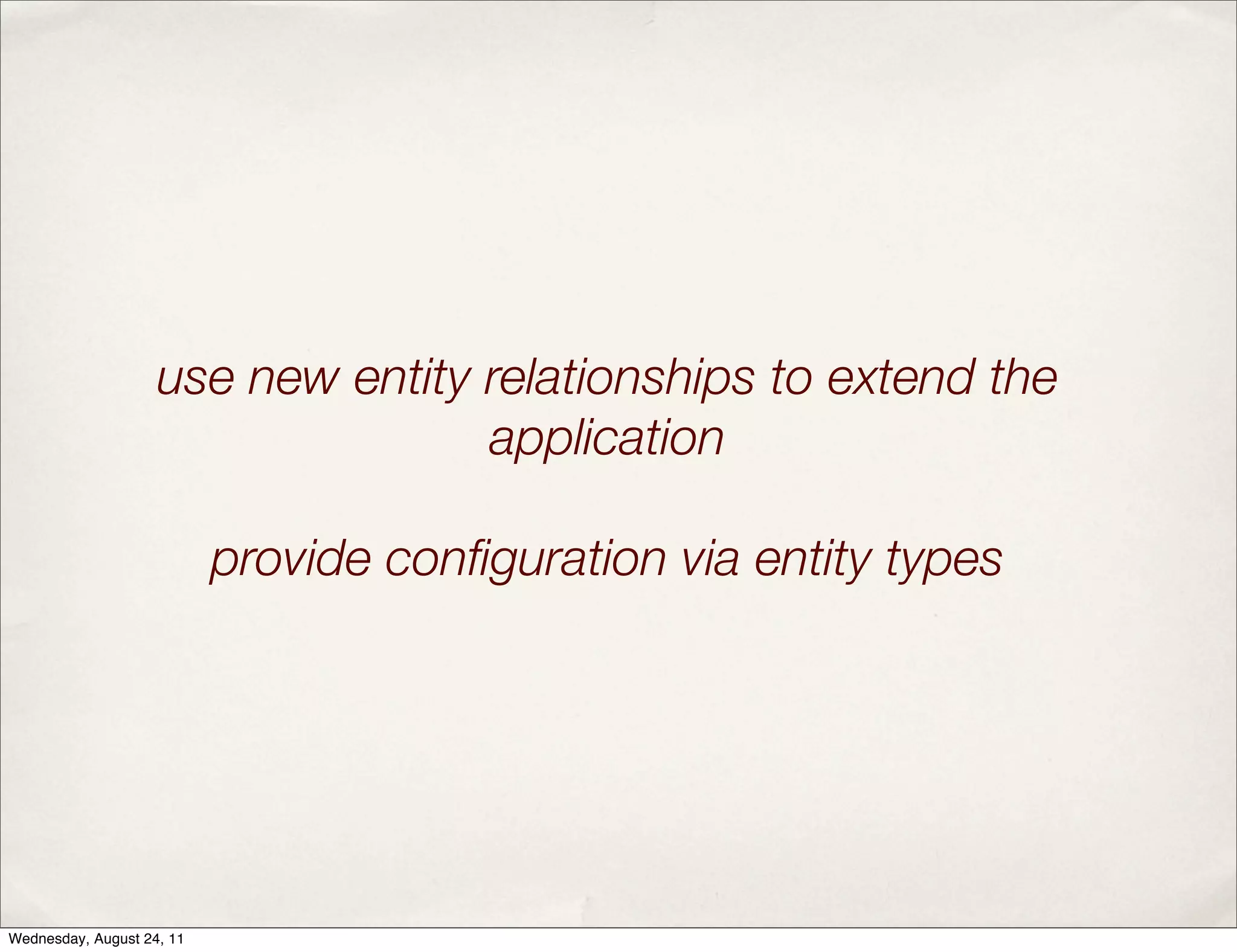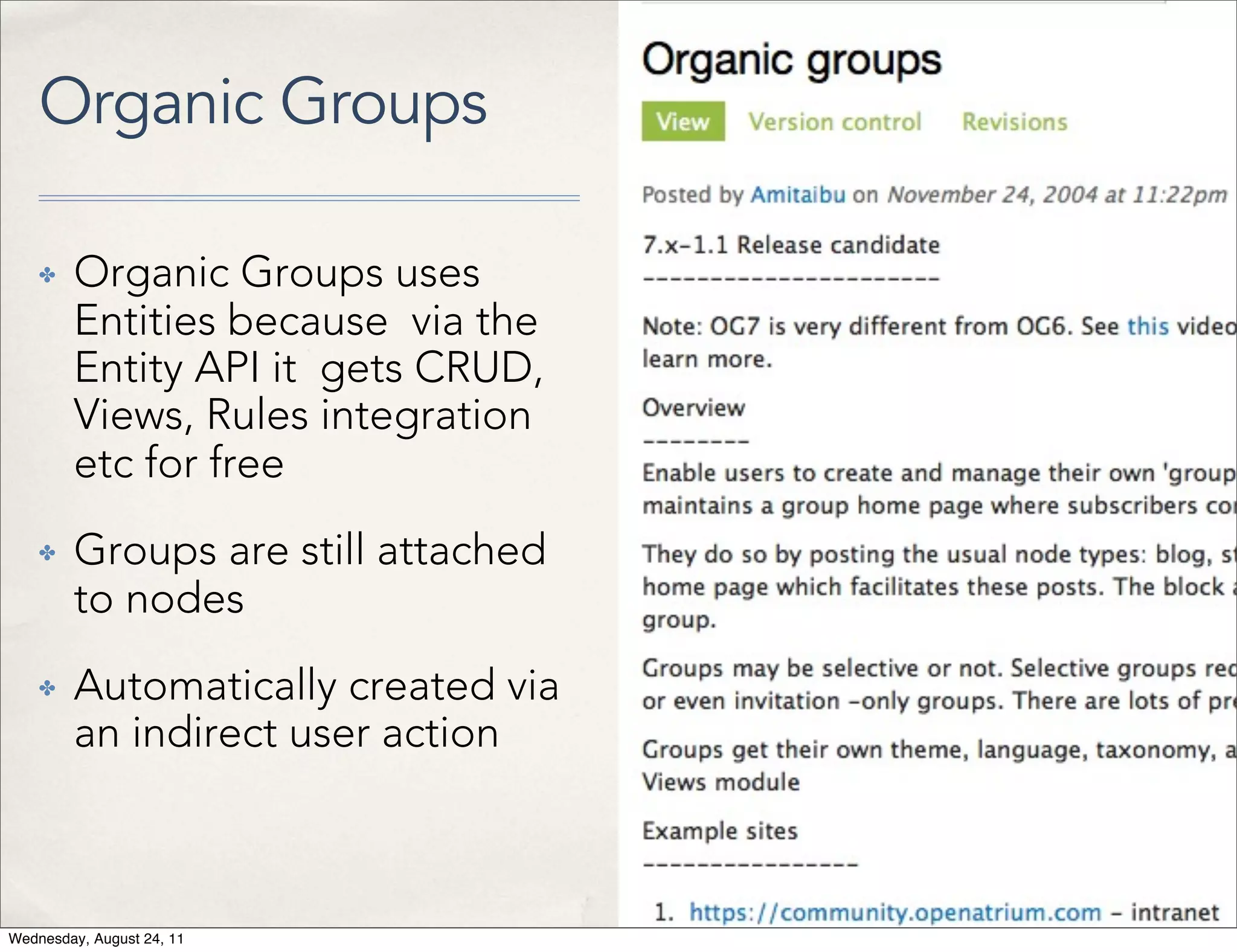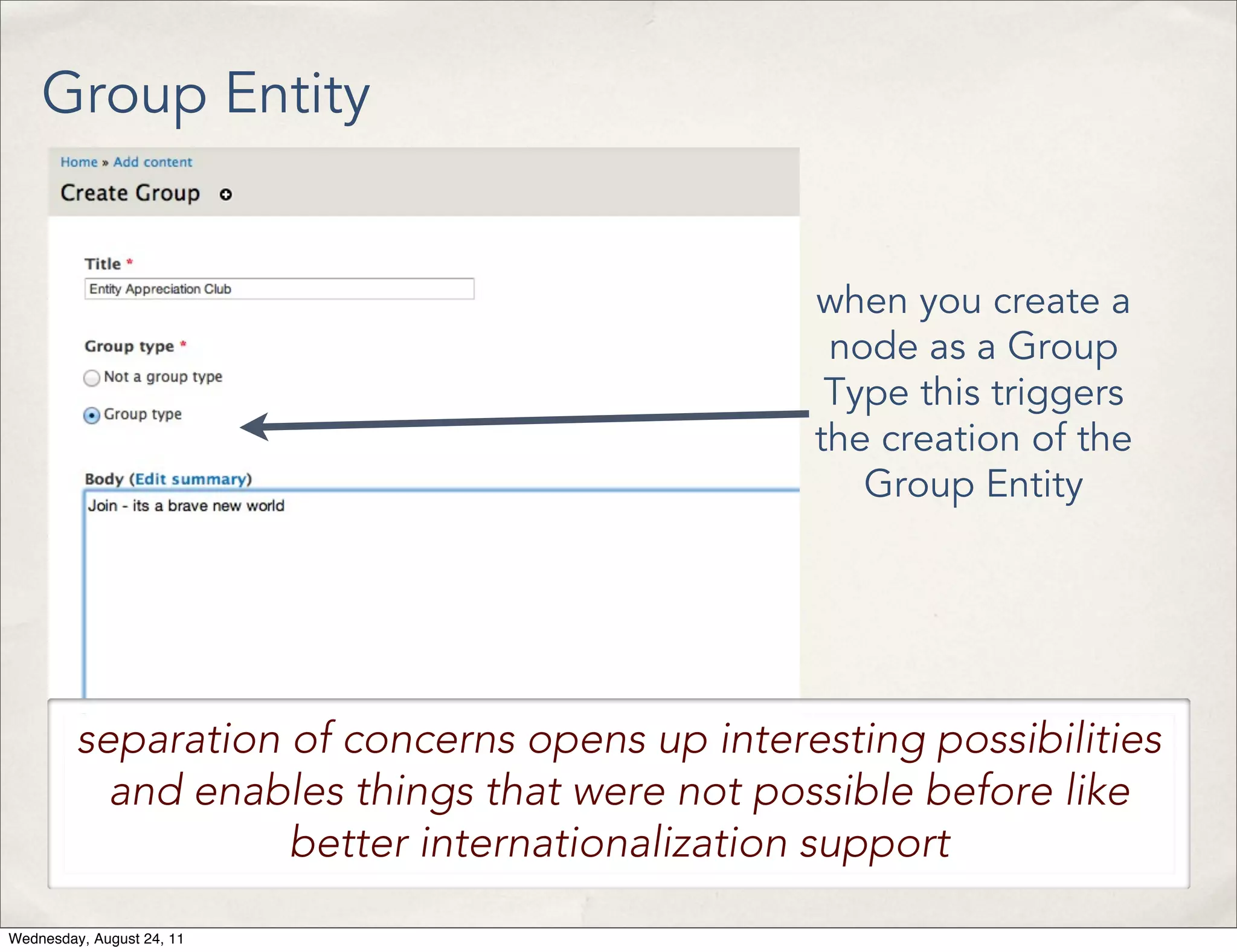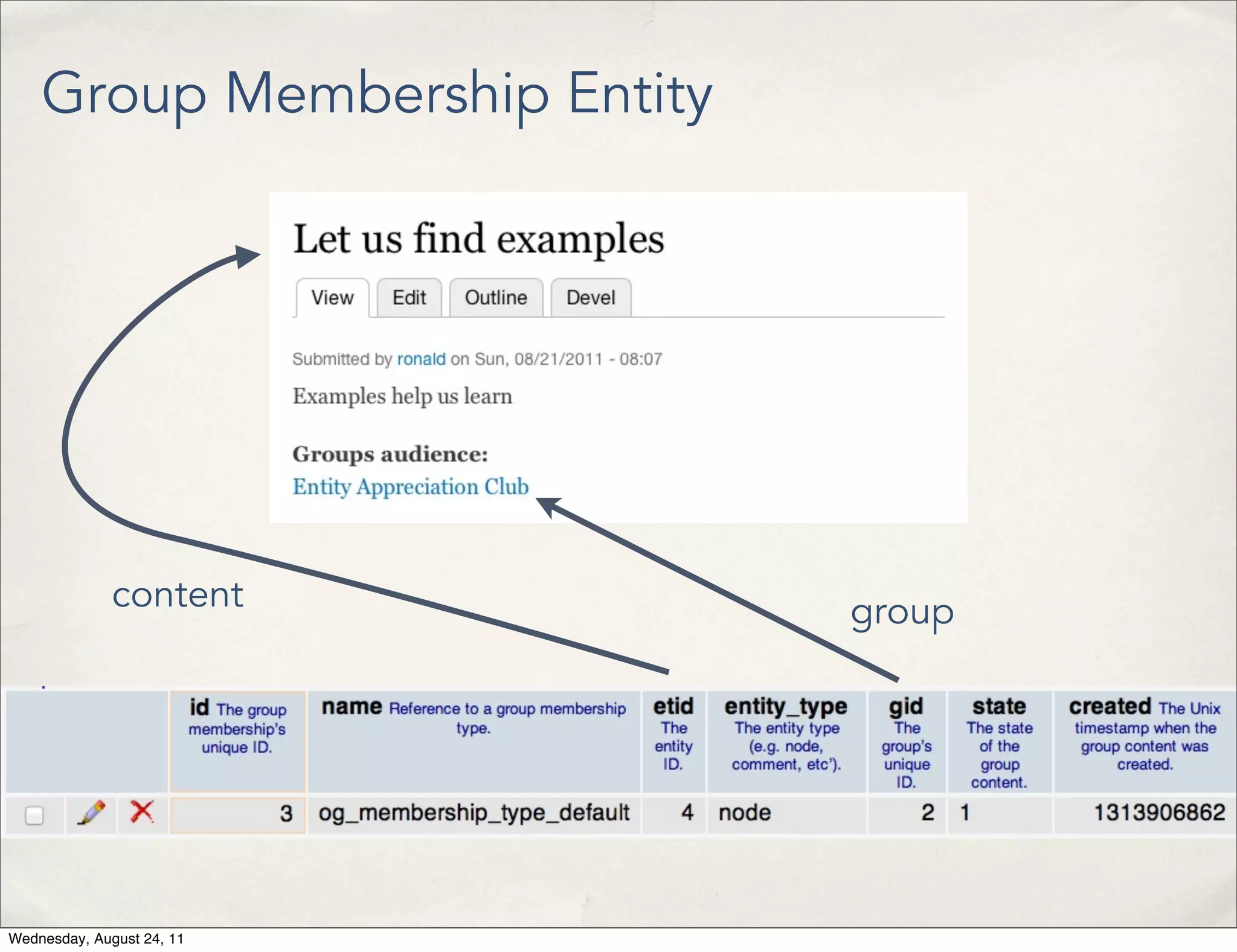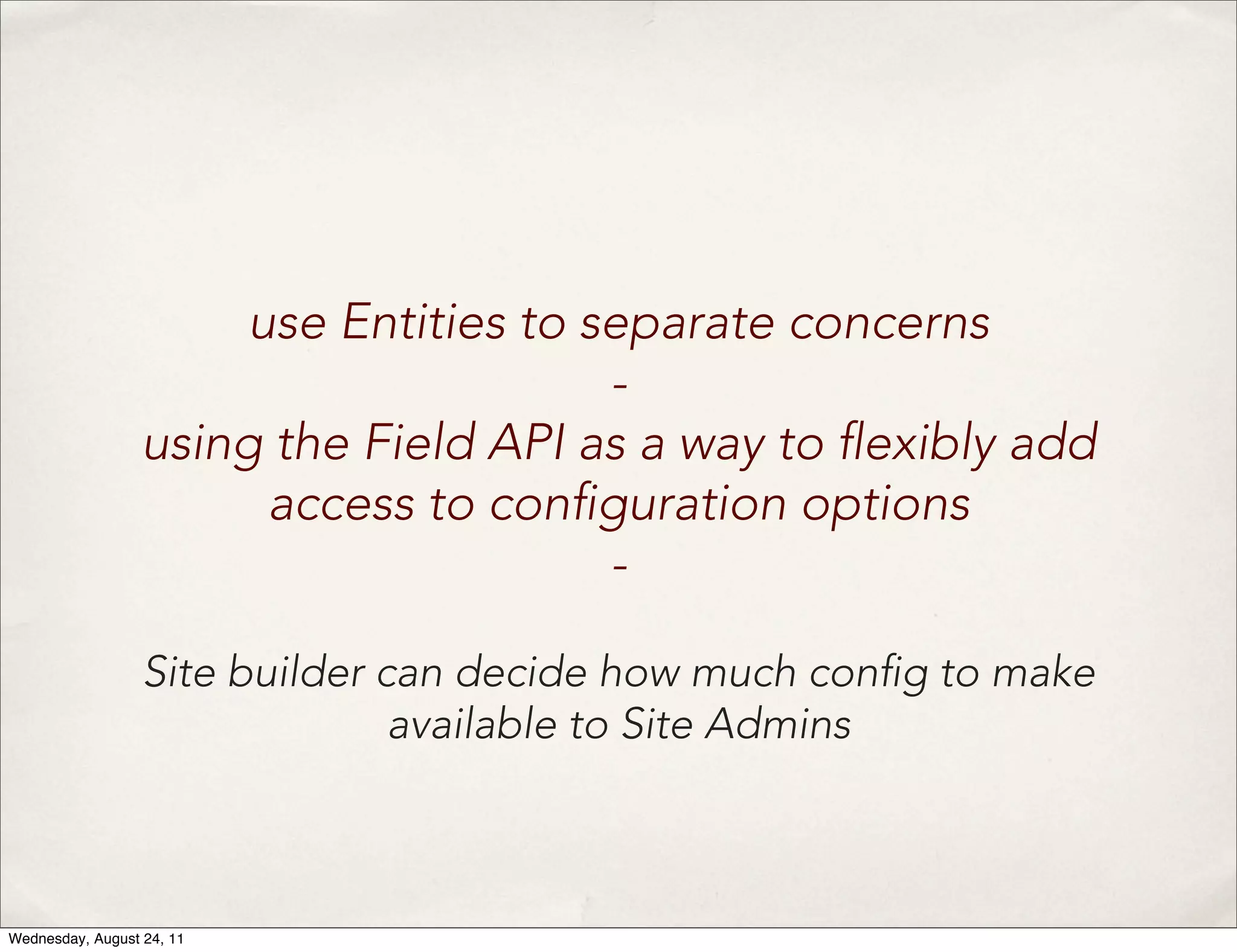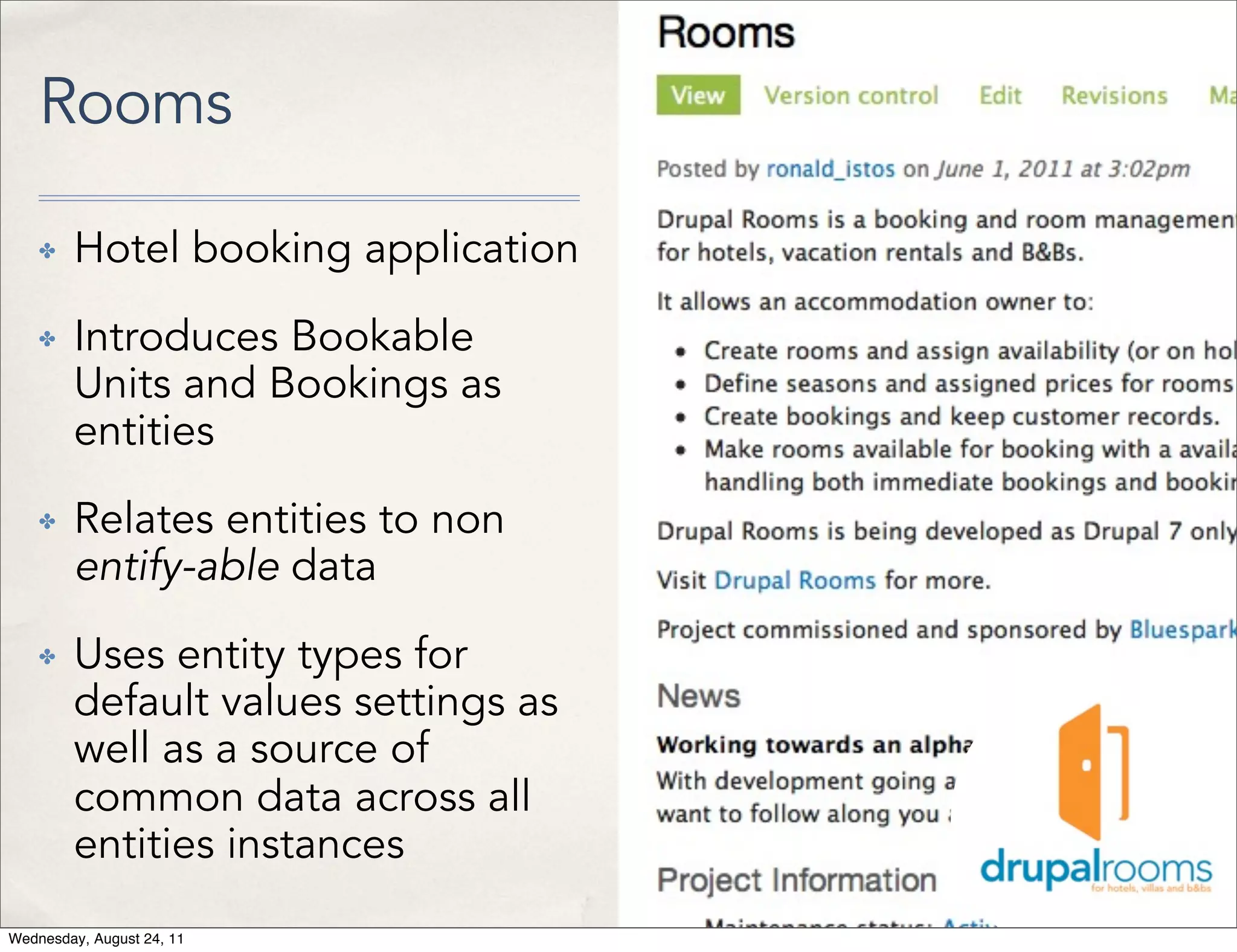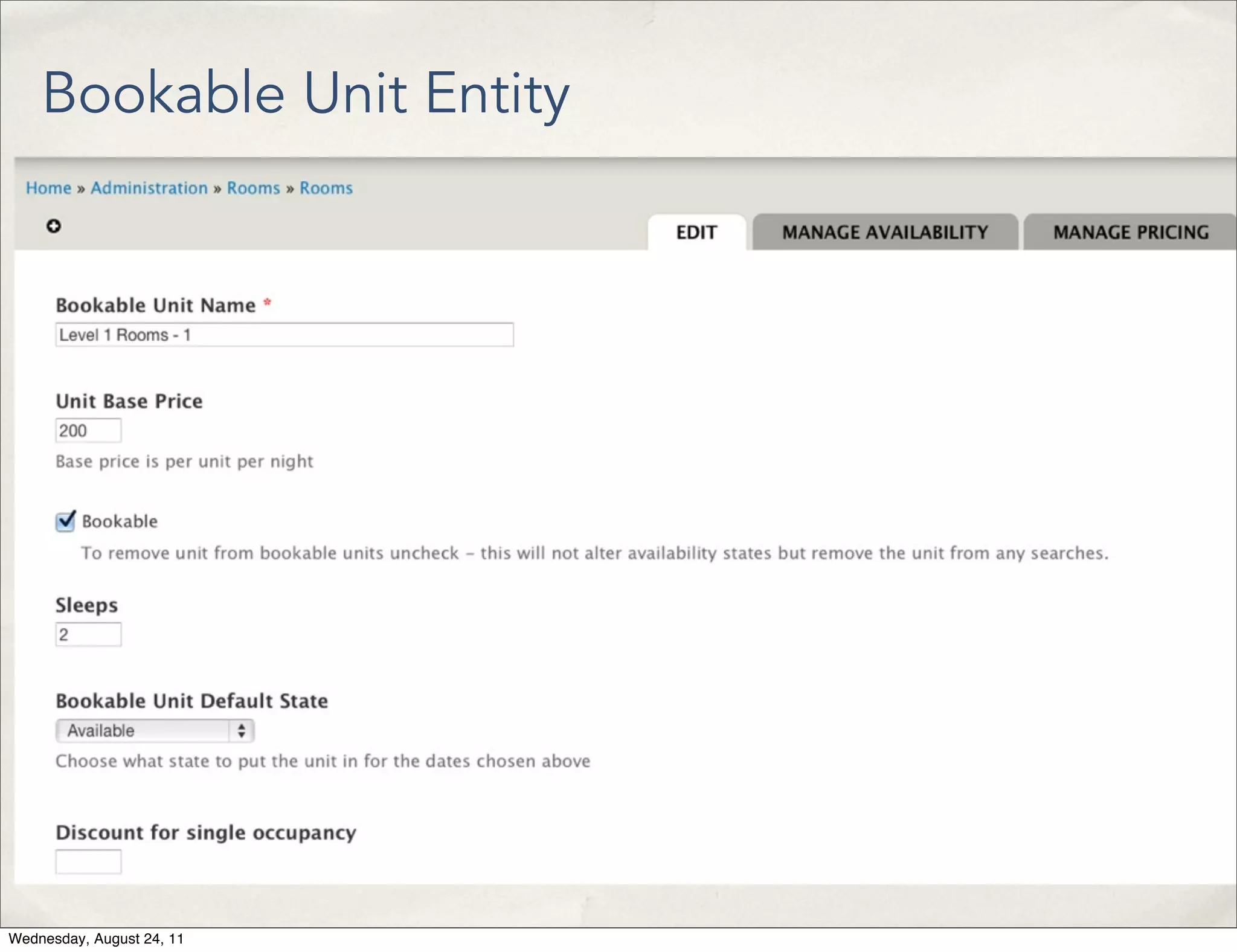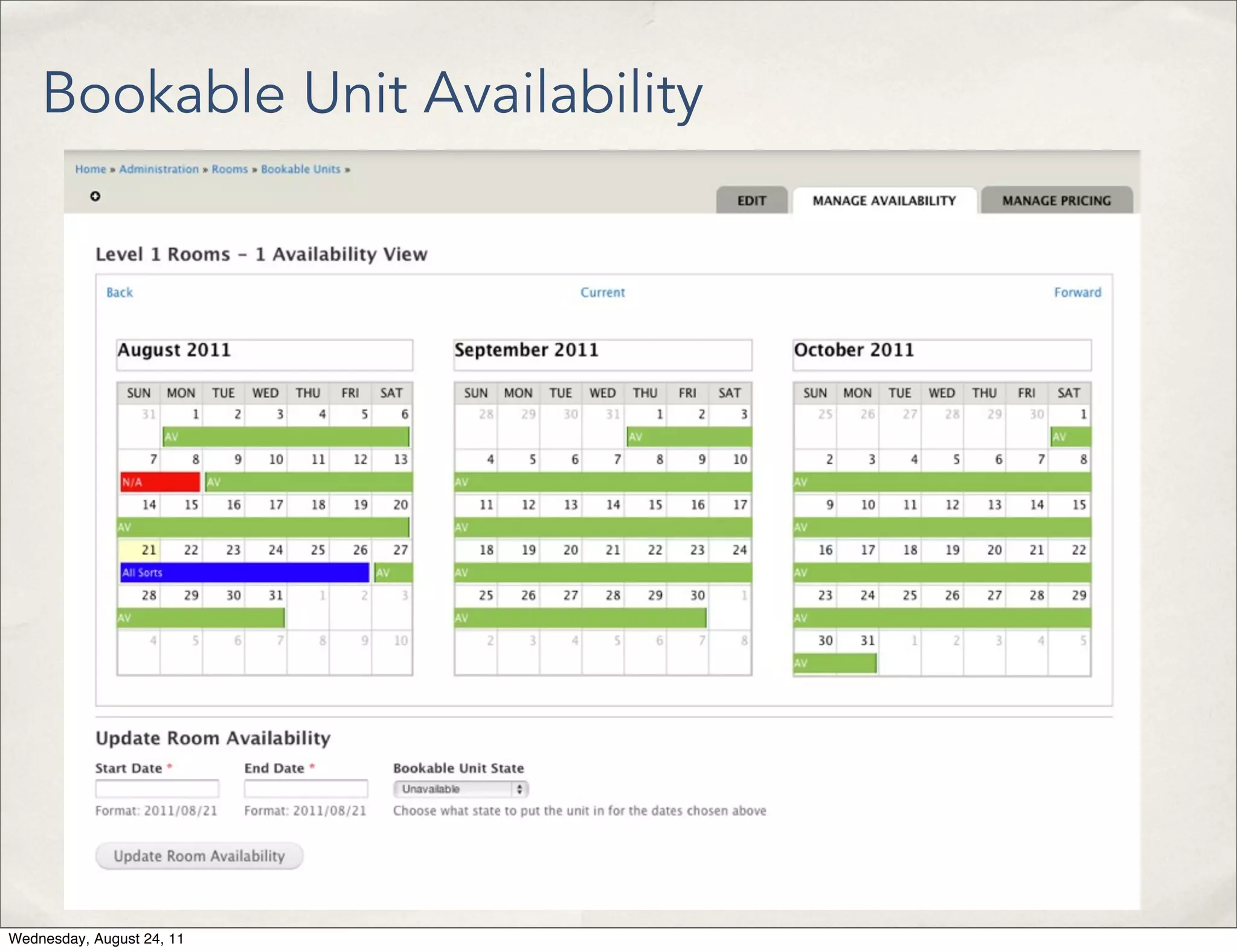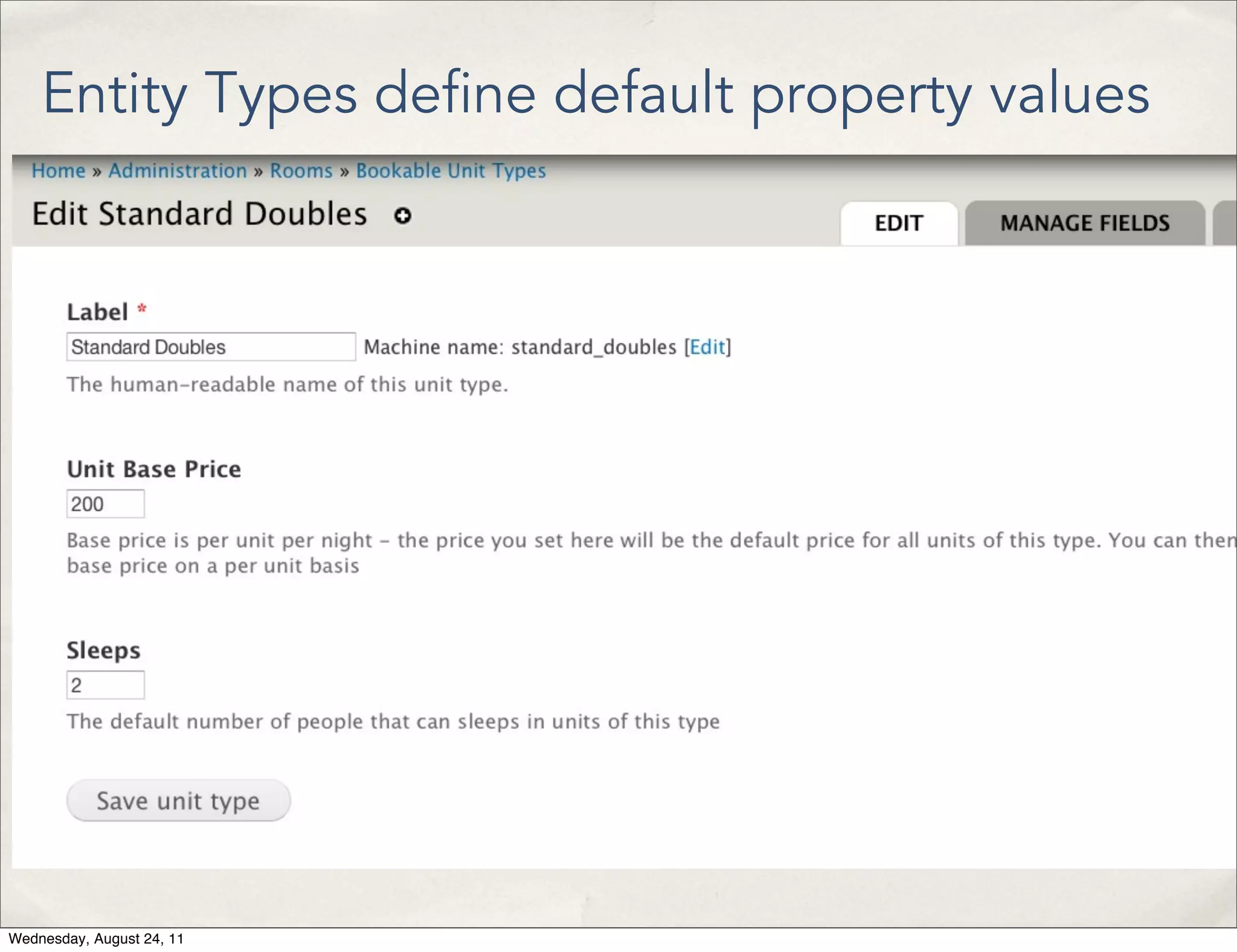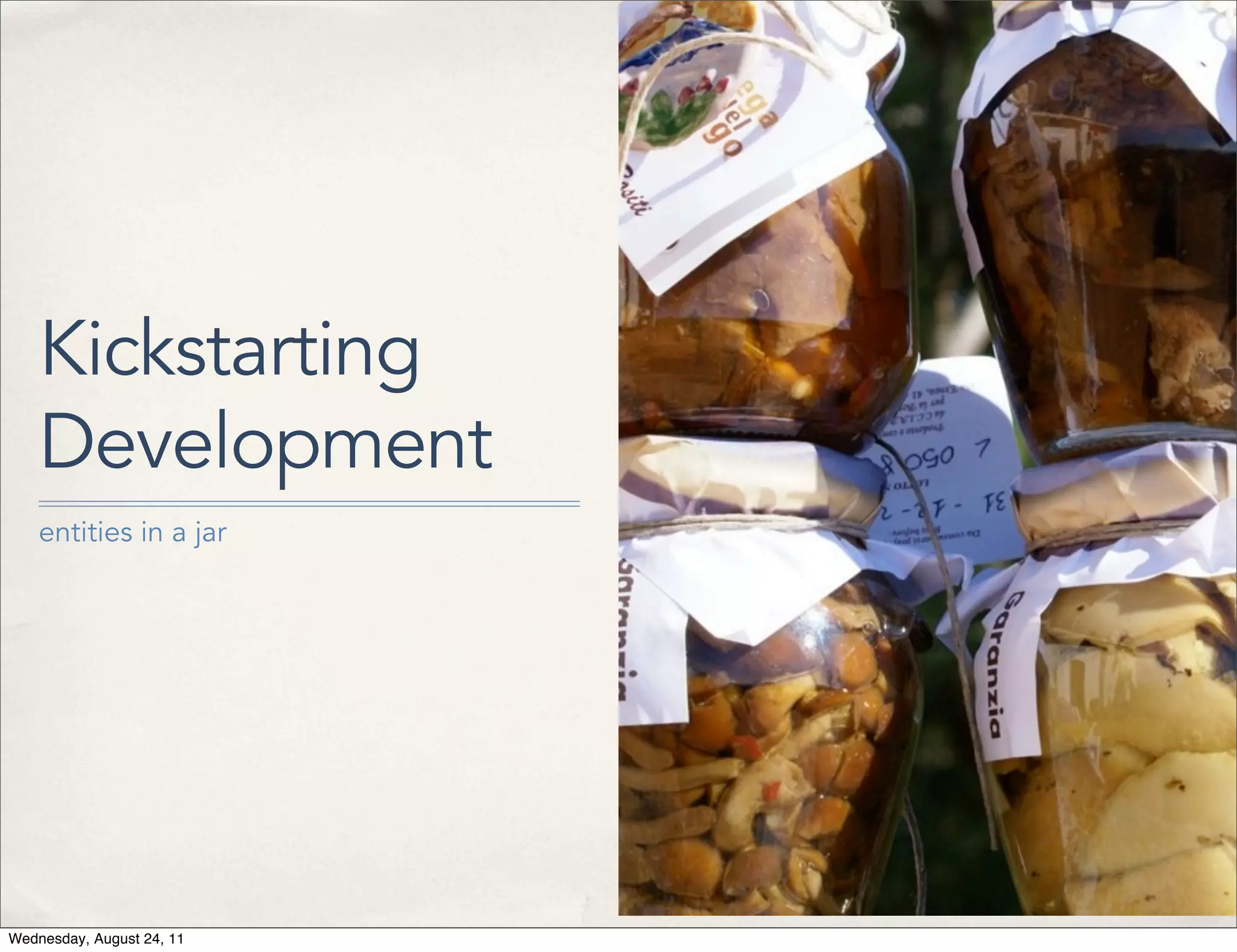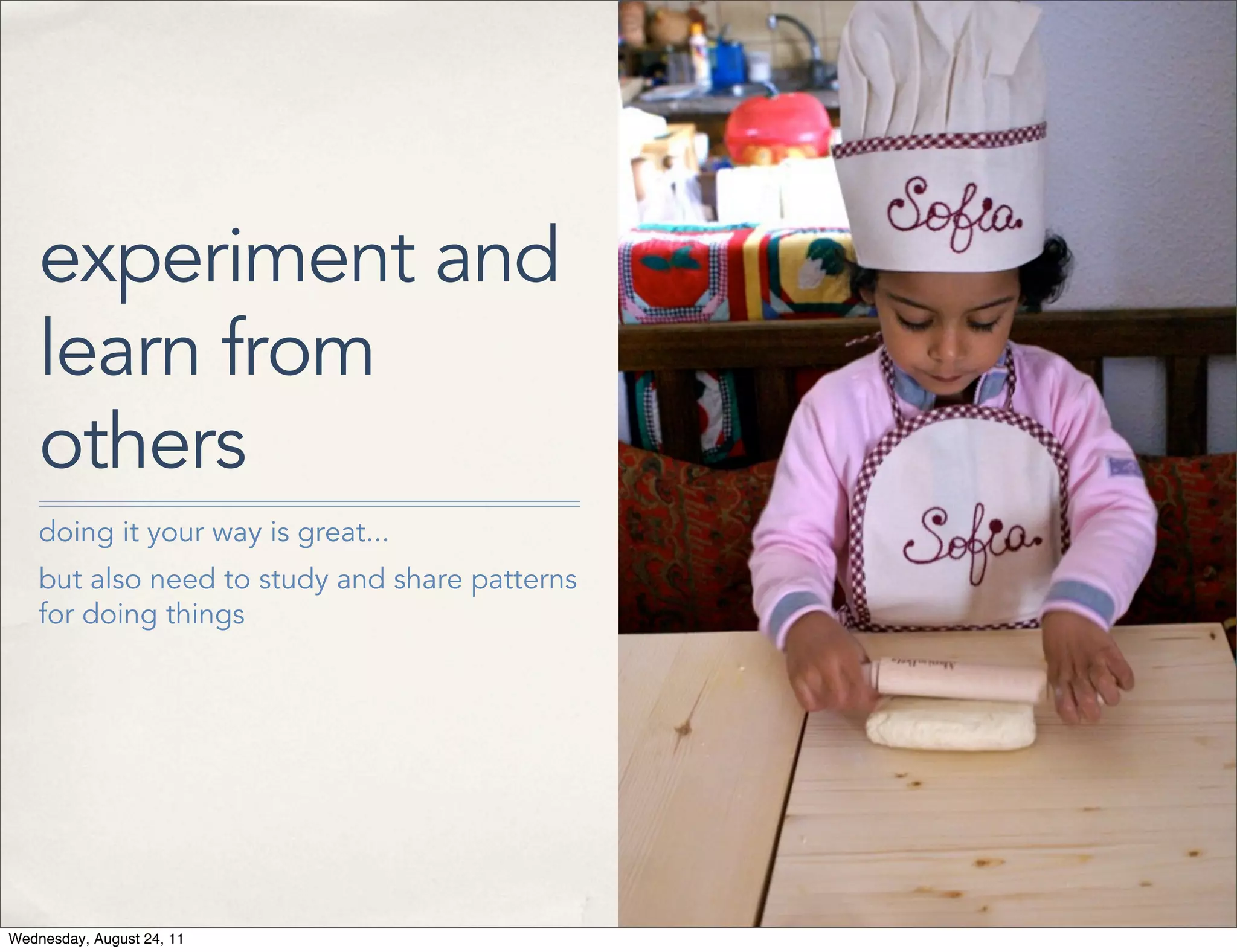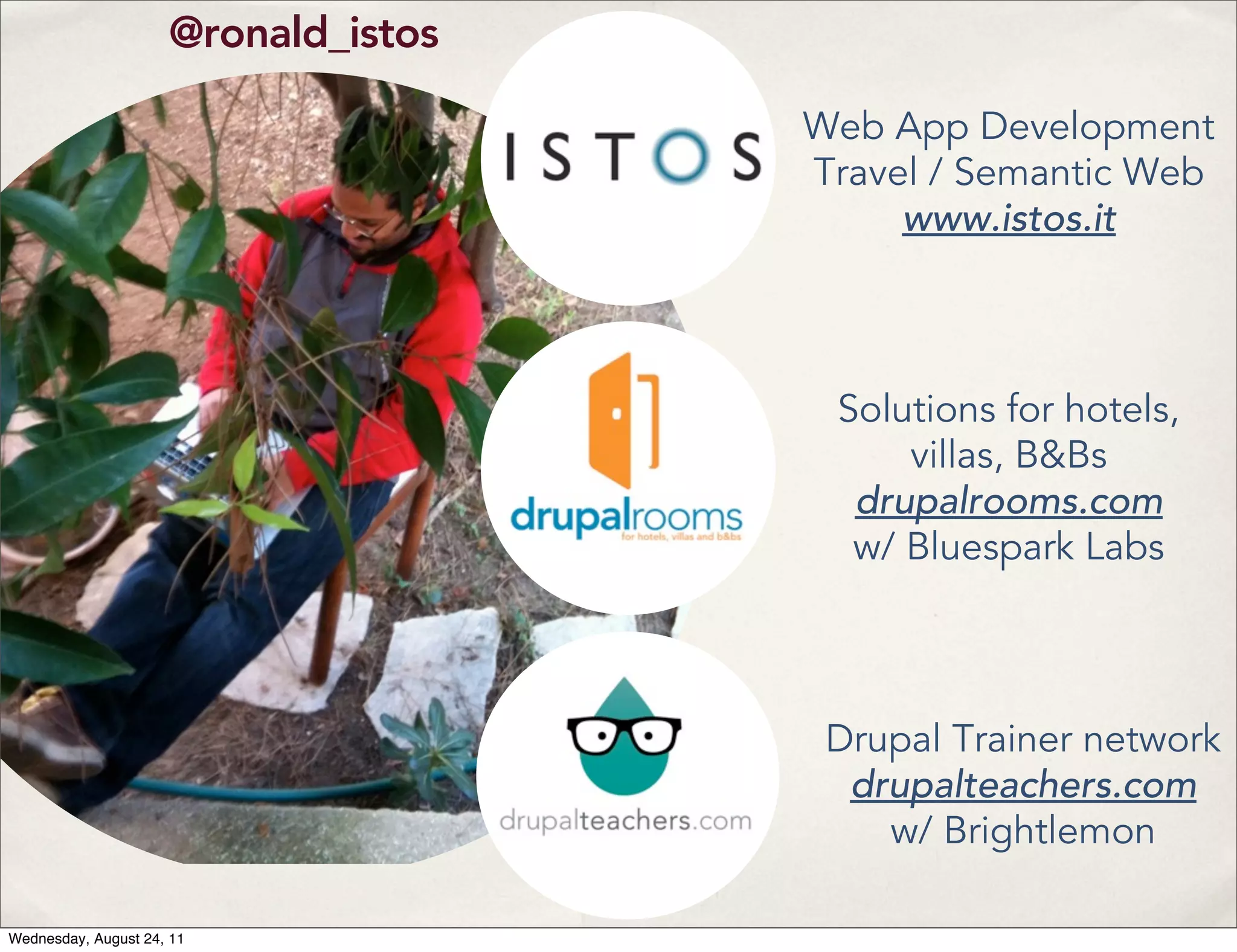The document discusses the emerging patterns of using entities in Drupal, highlighting their importance in web app development and their role in structuring data efficiently. It emphasizes how entities facilitate better integration and extend functionality within the Drupal ecosystem, particularly through the entity module. The presentation outlines various examples, including how entities can enhance application development and improve the overall user experience.

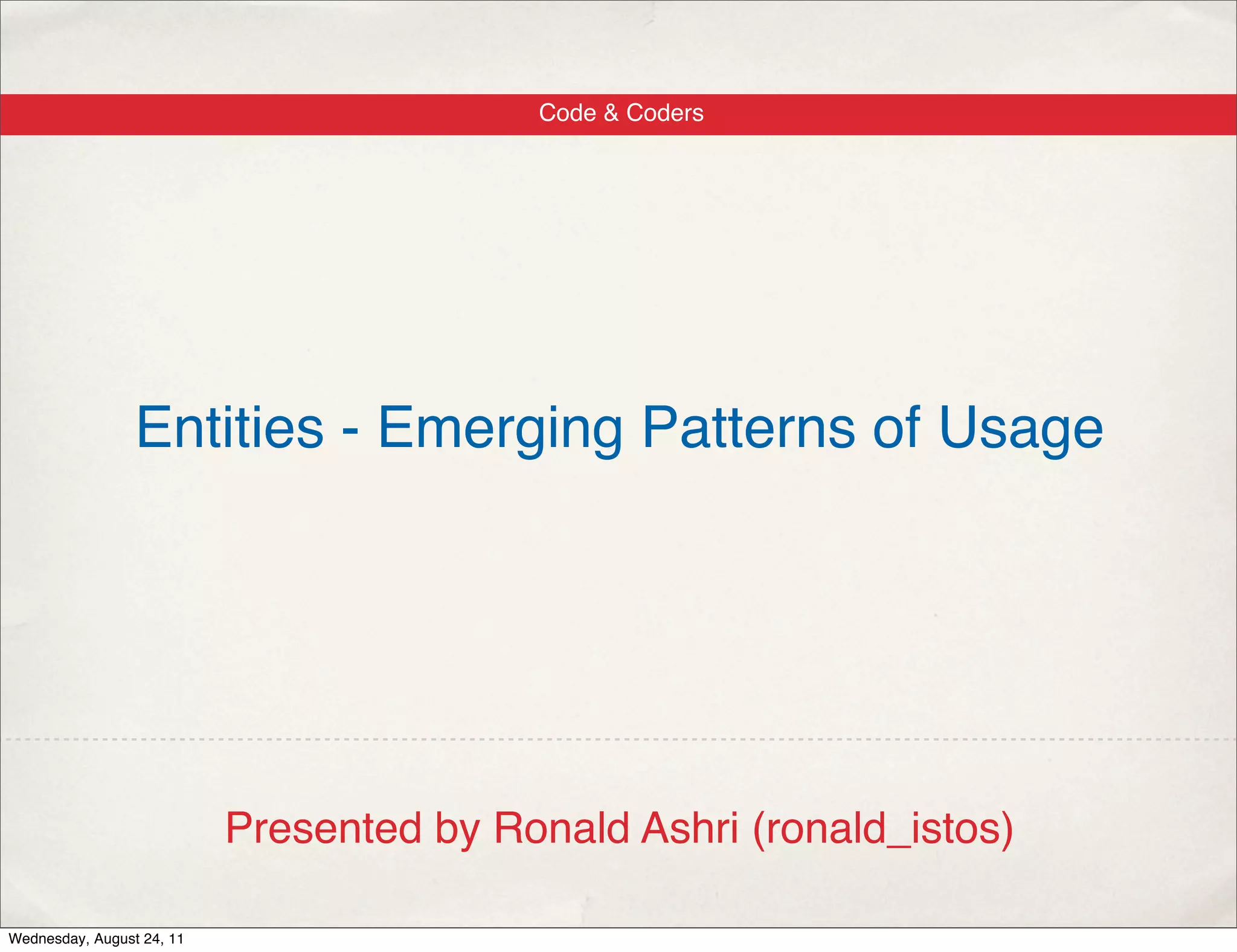
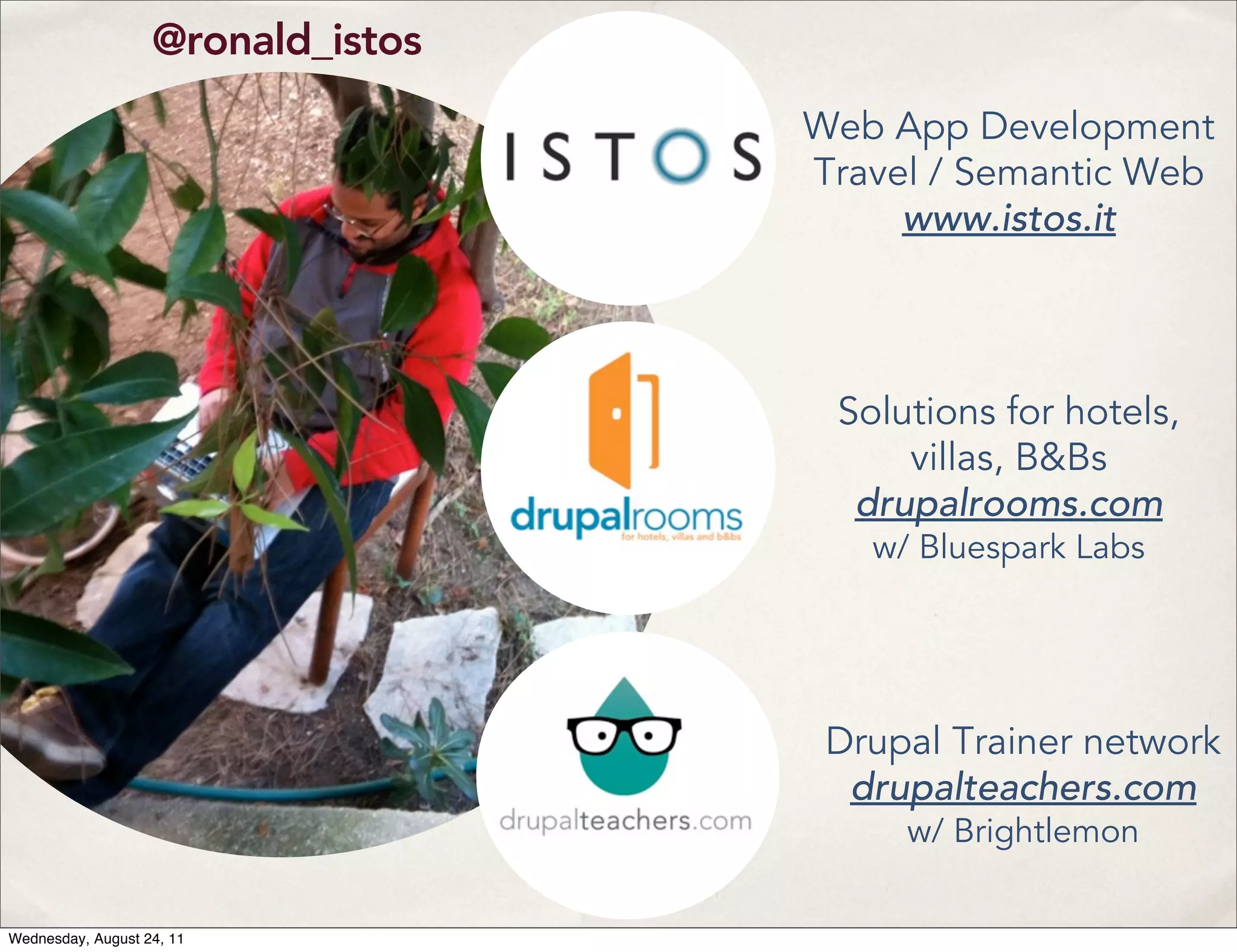
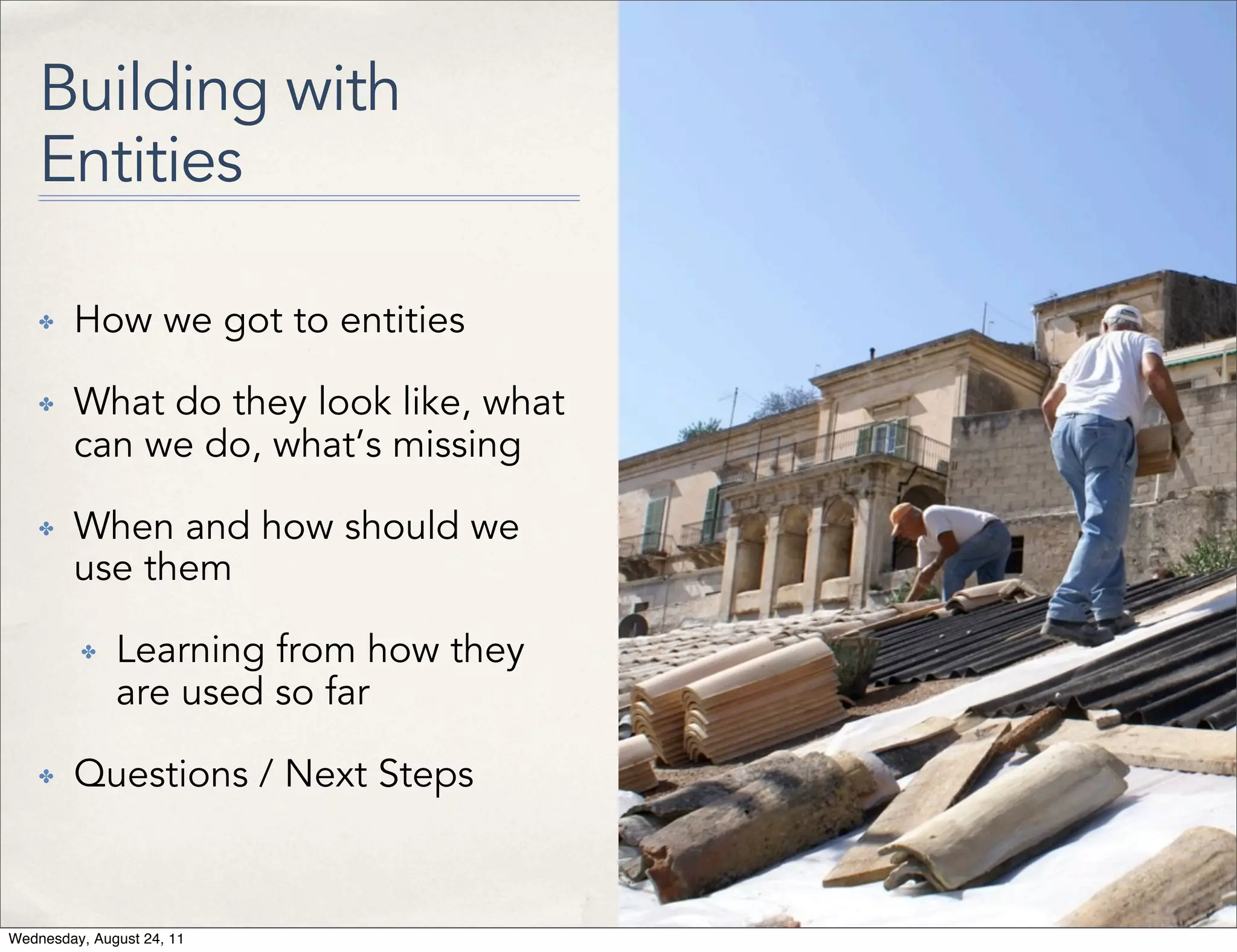
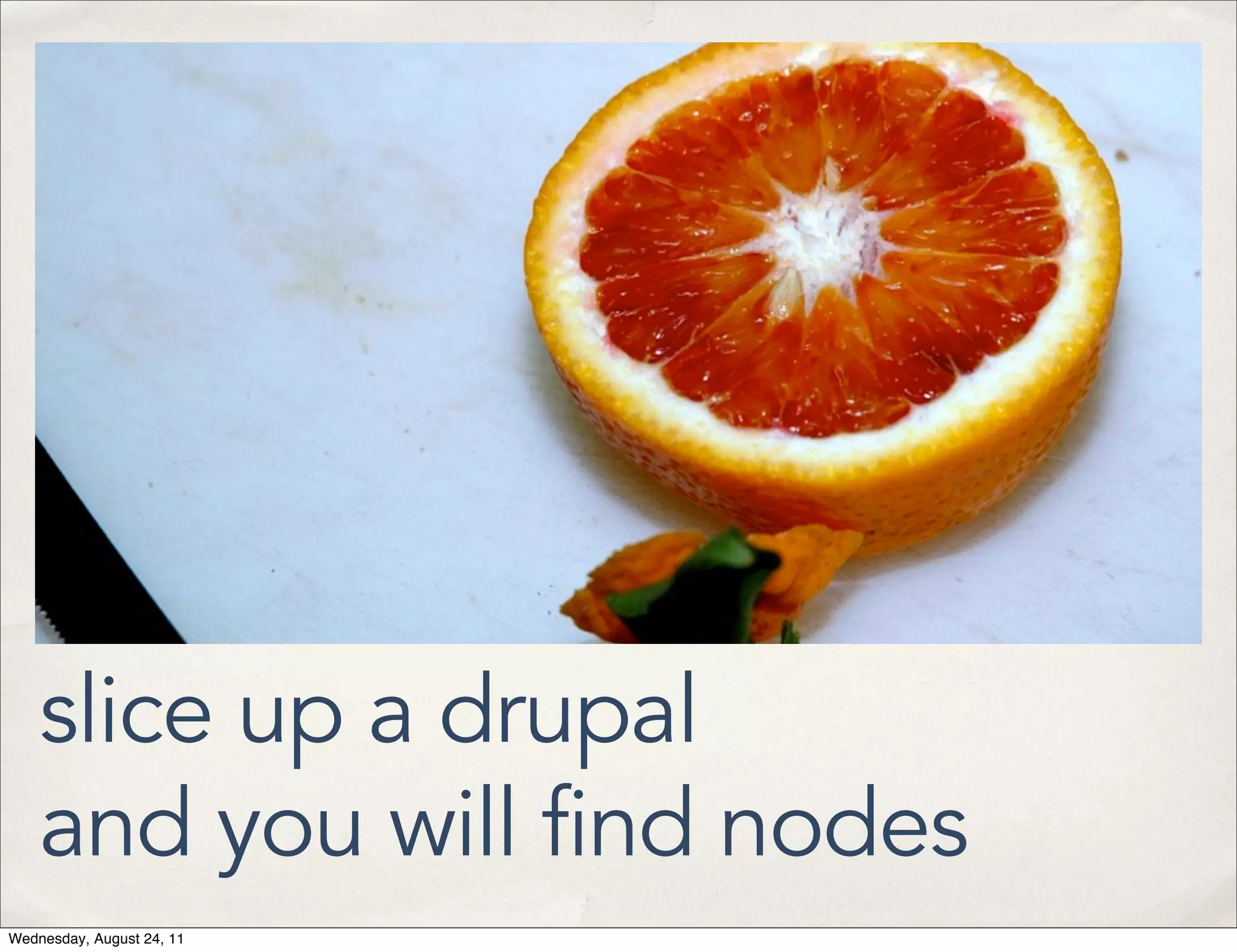
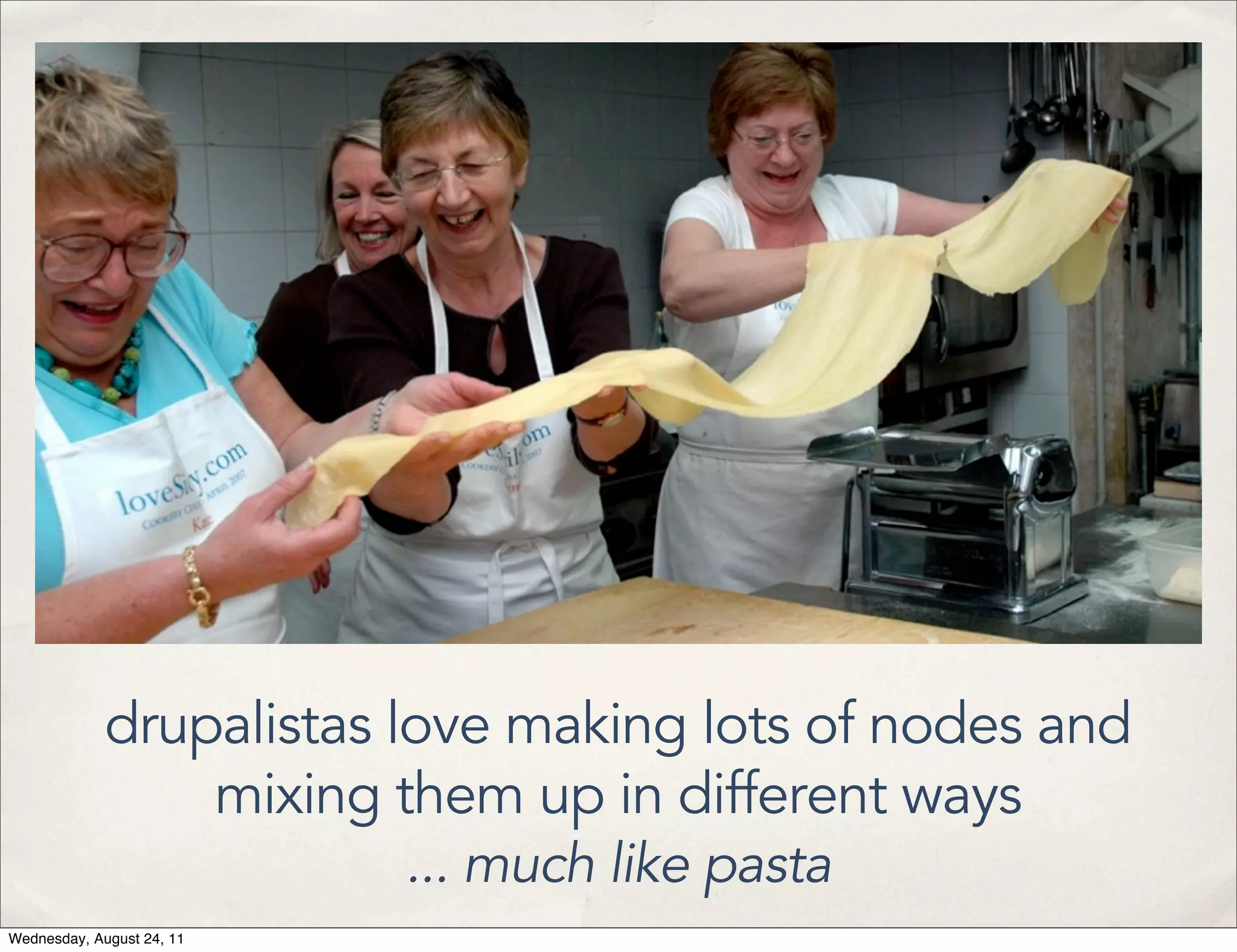
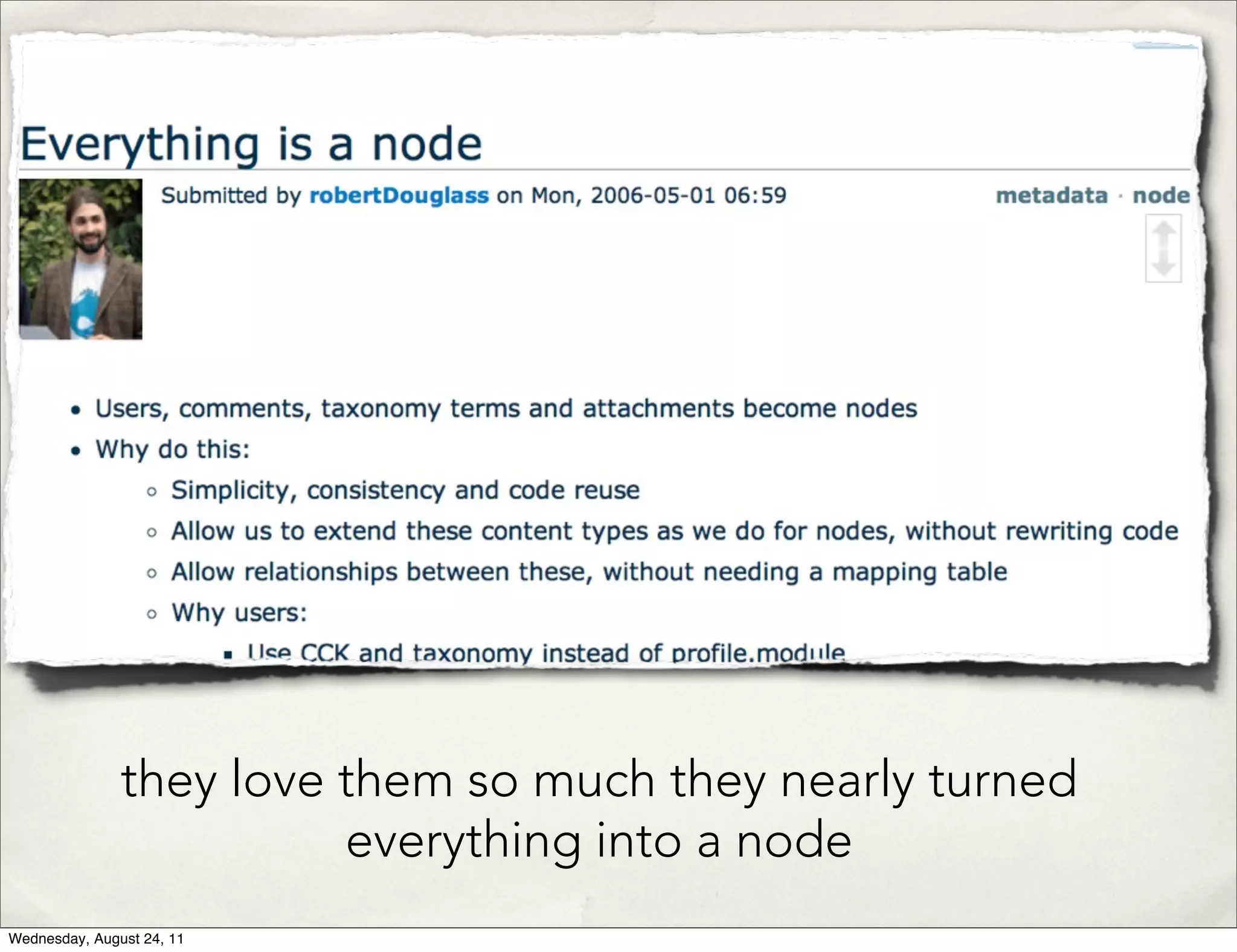
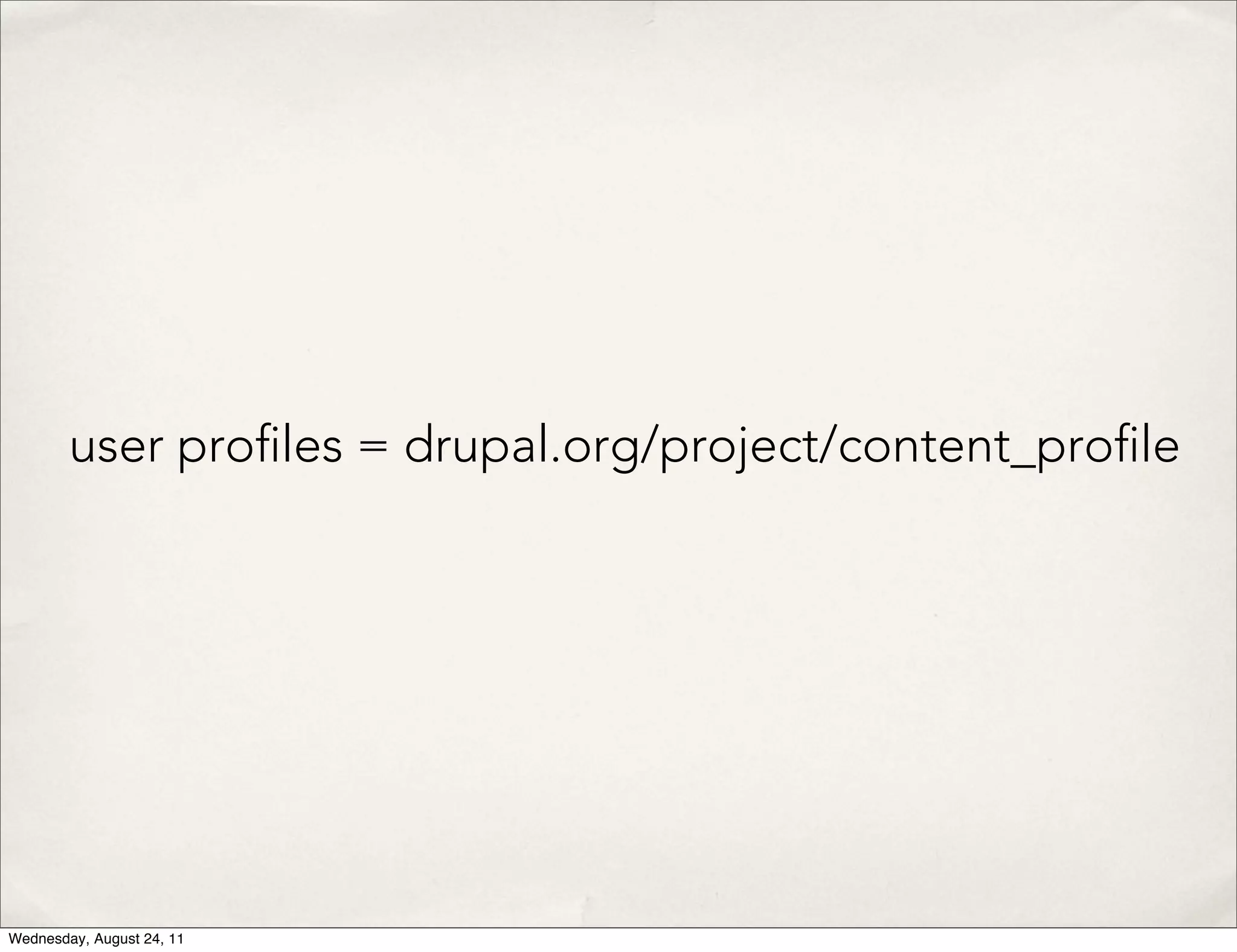
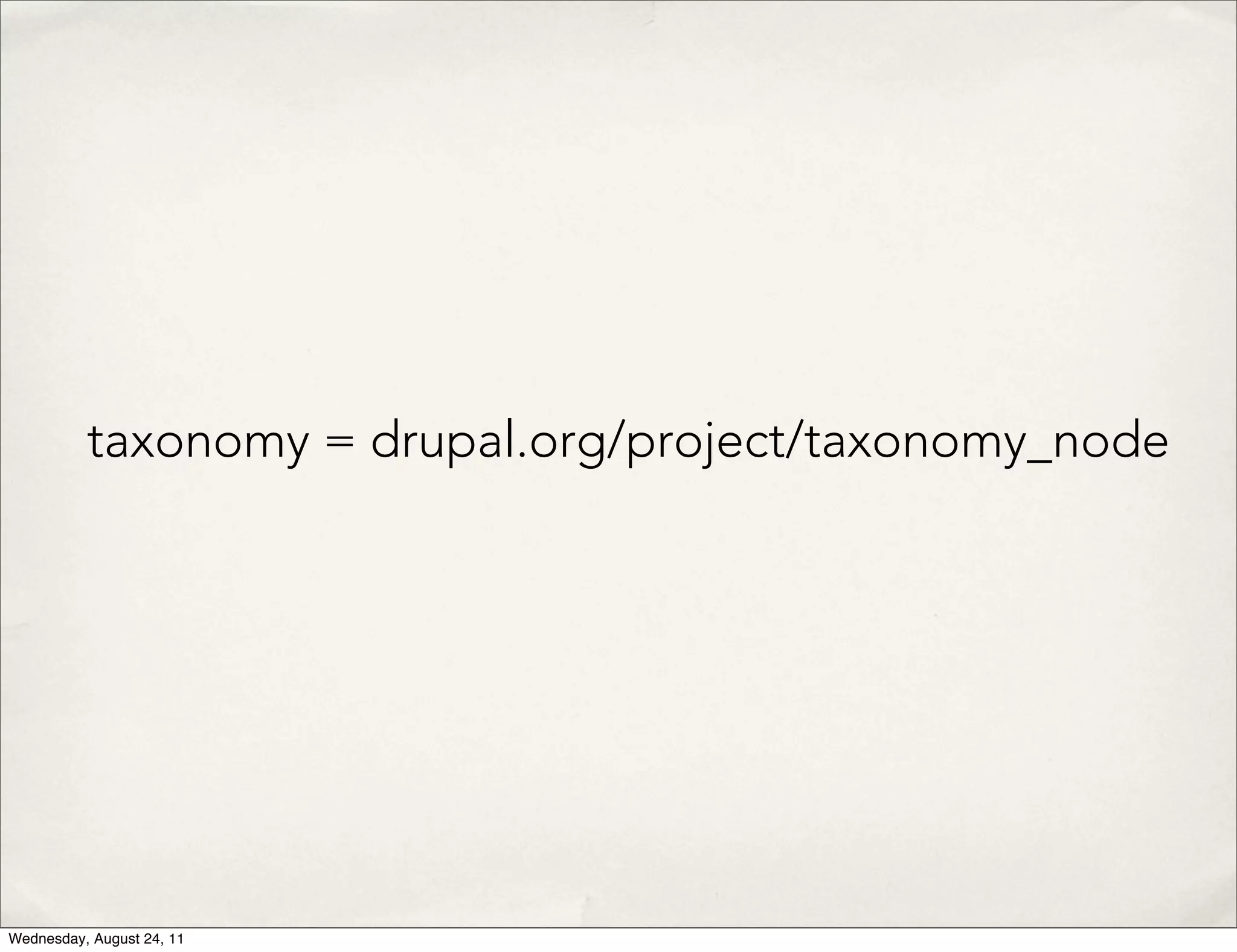
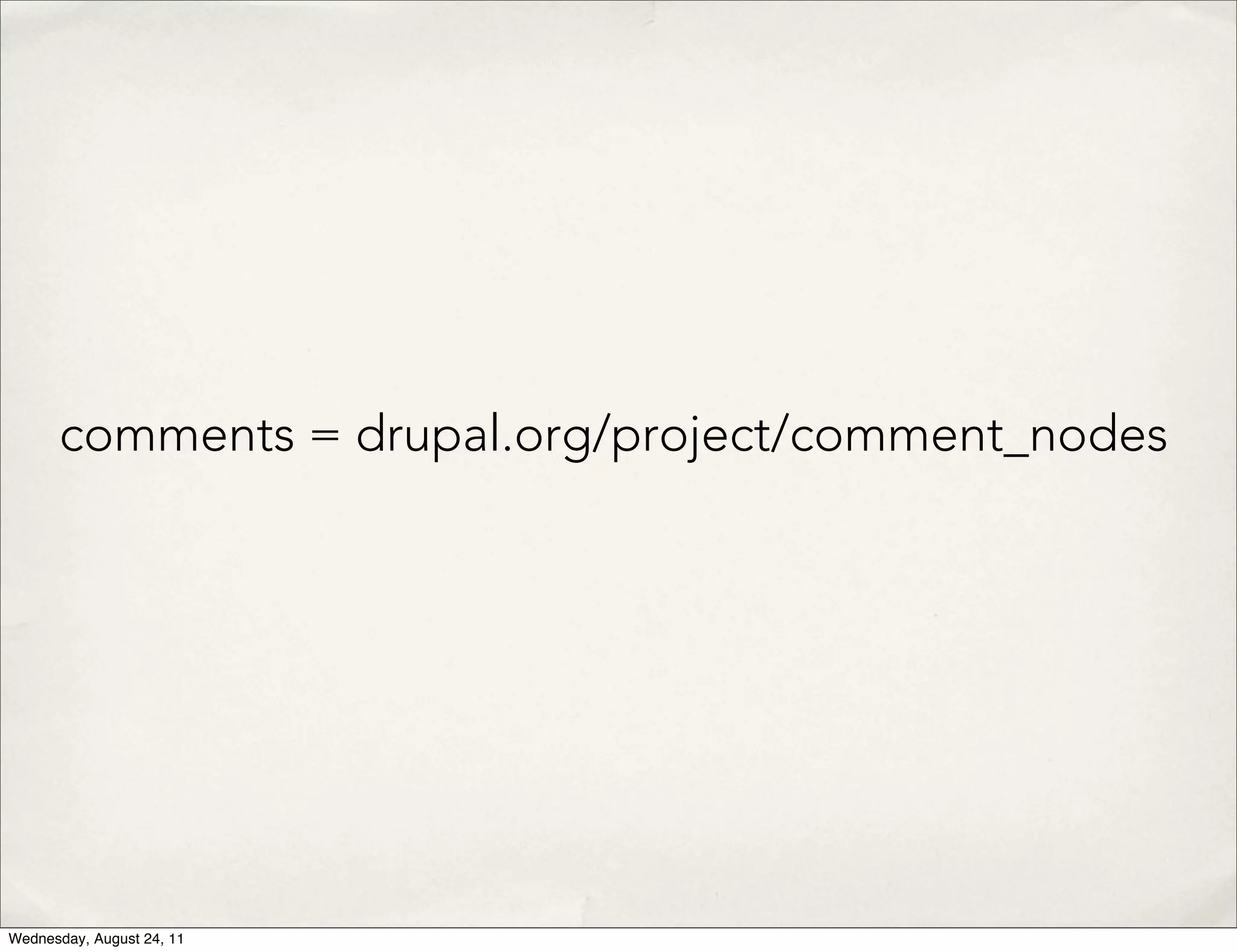
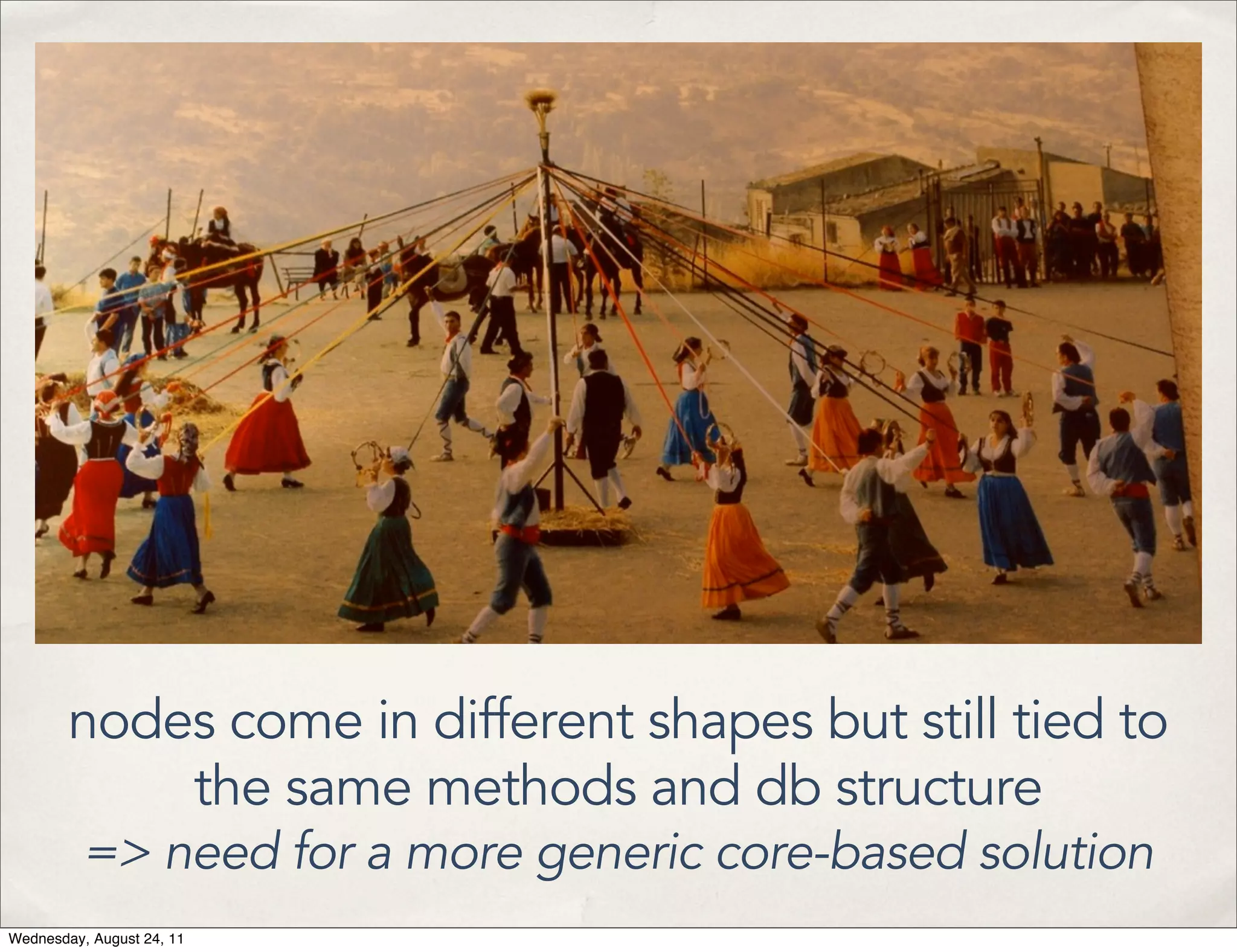
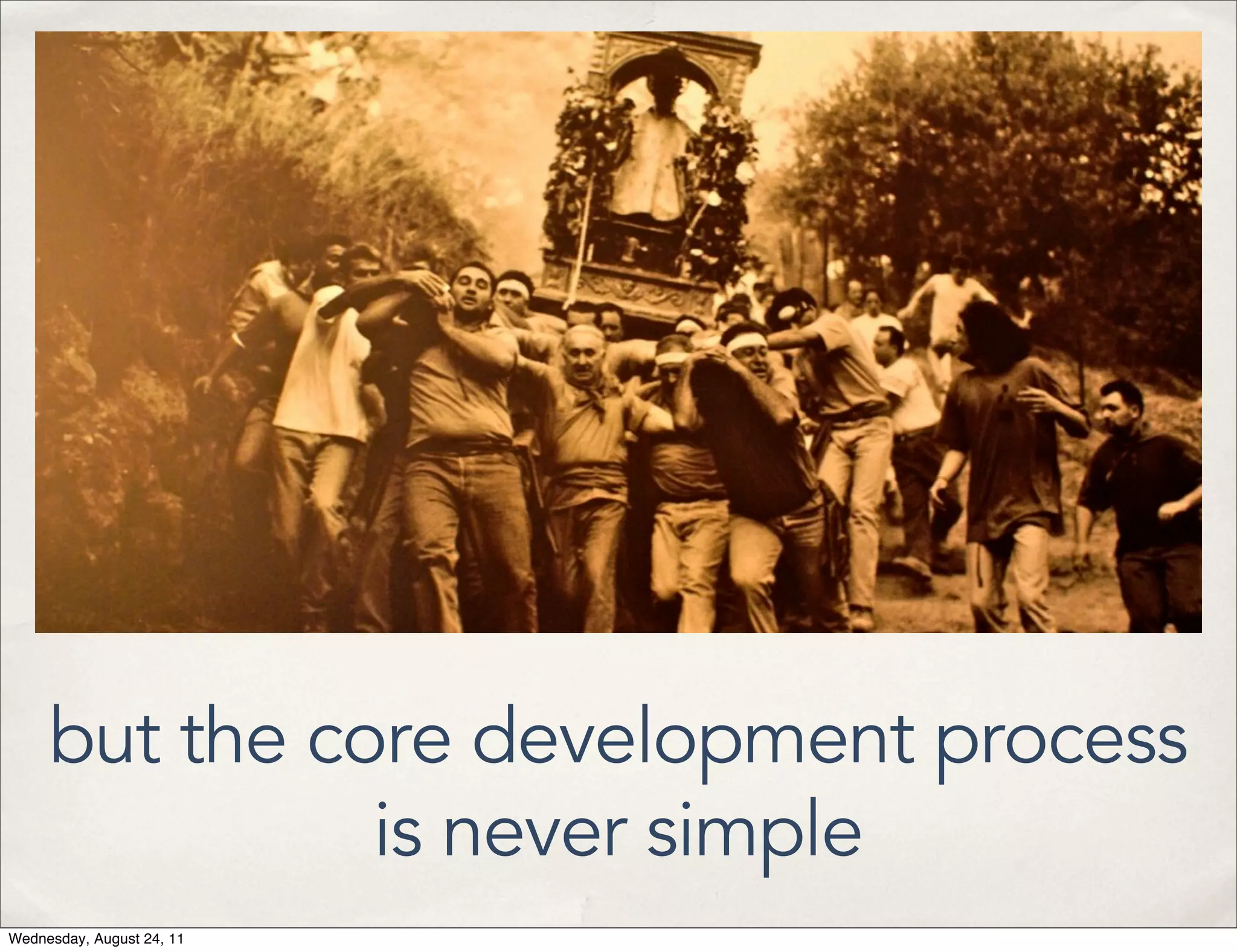
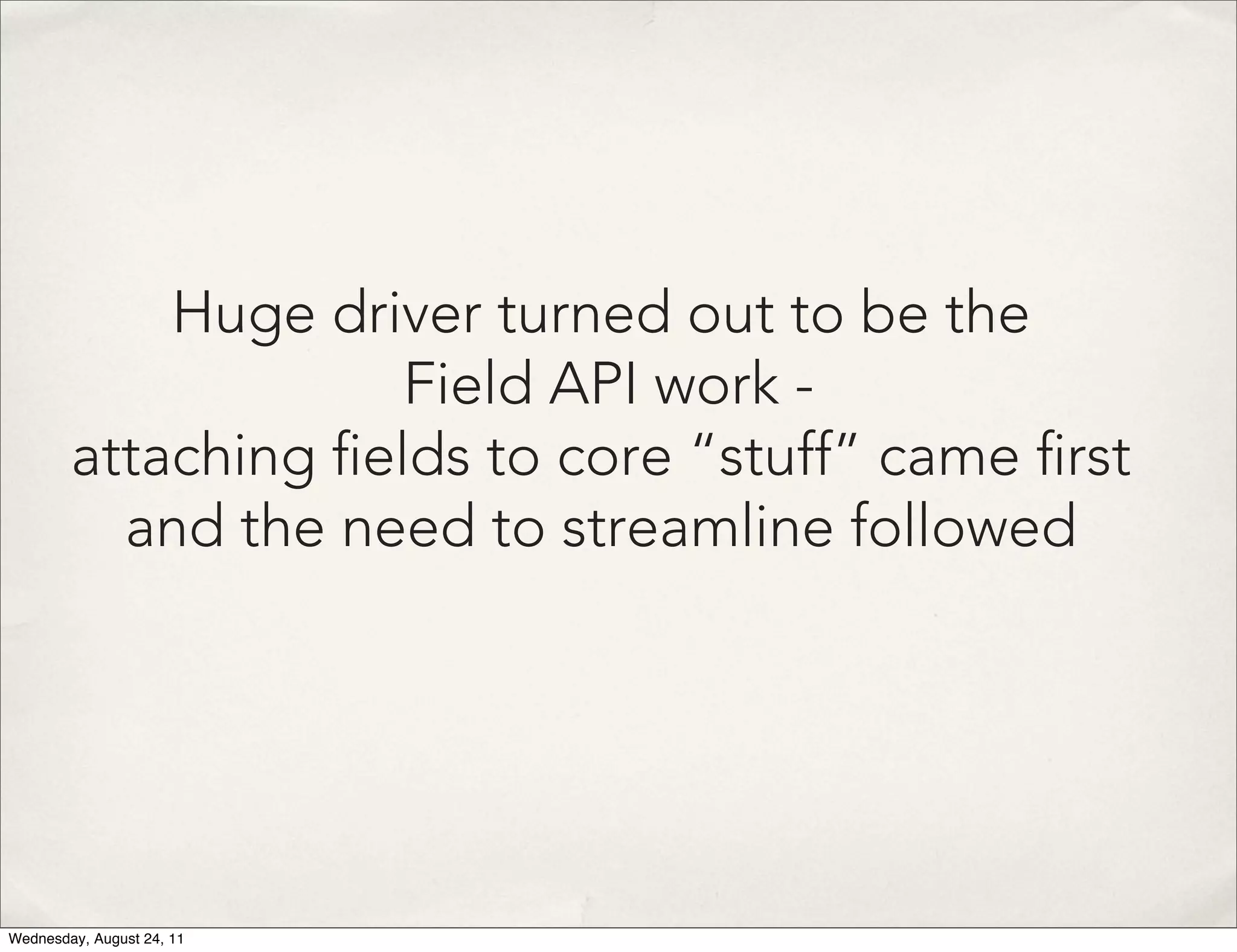
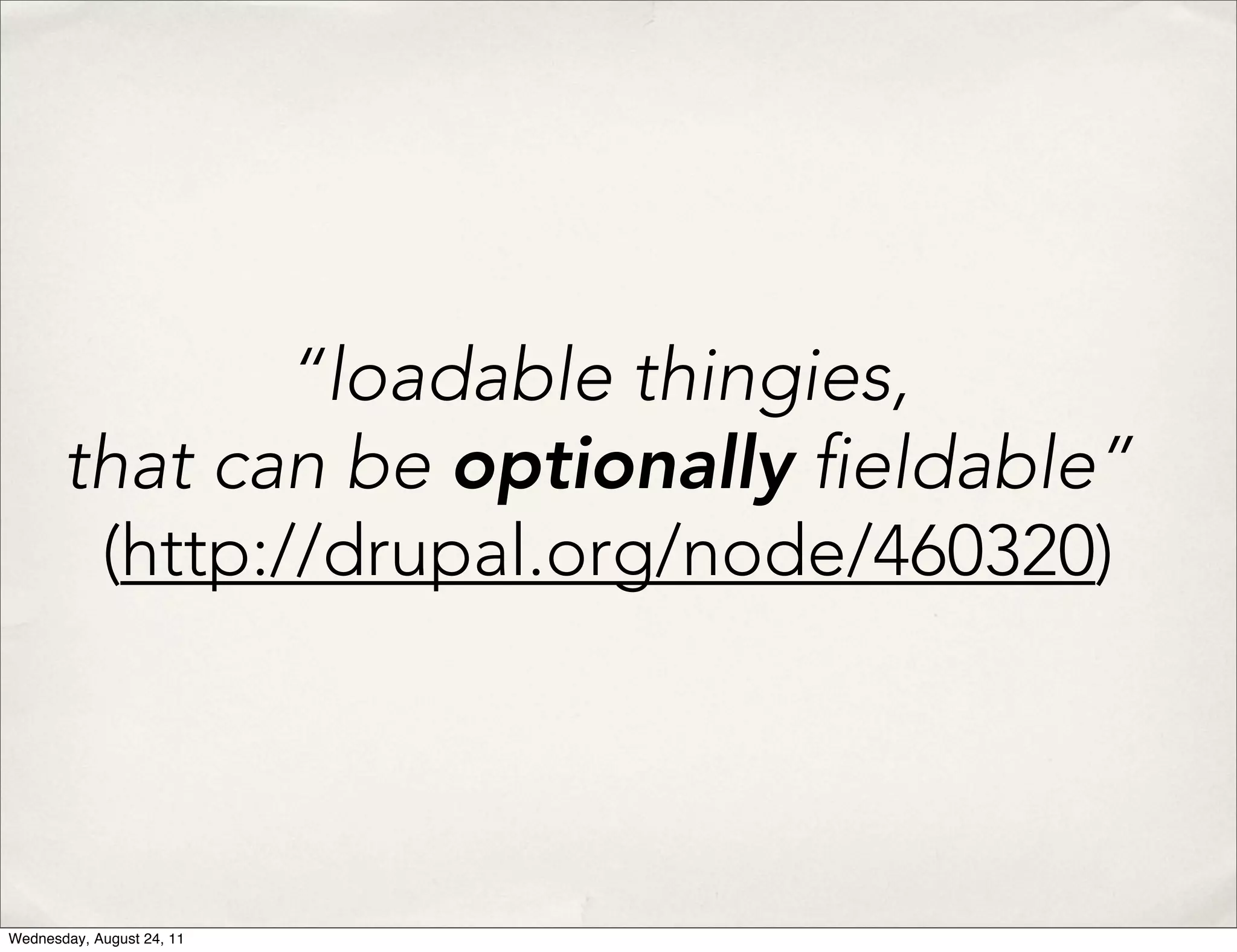
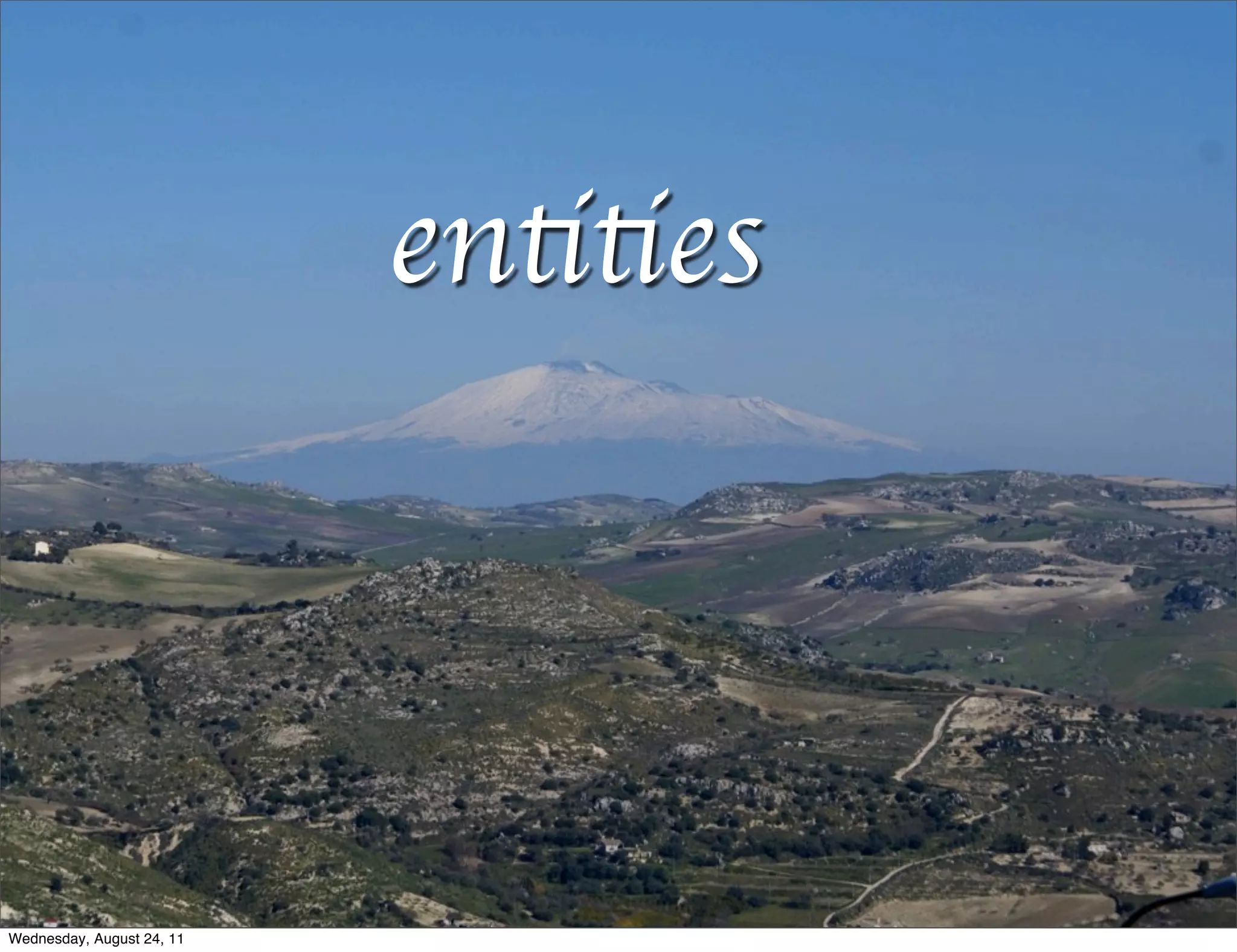
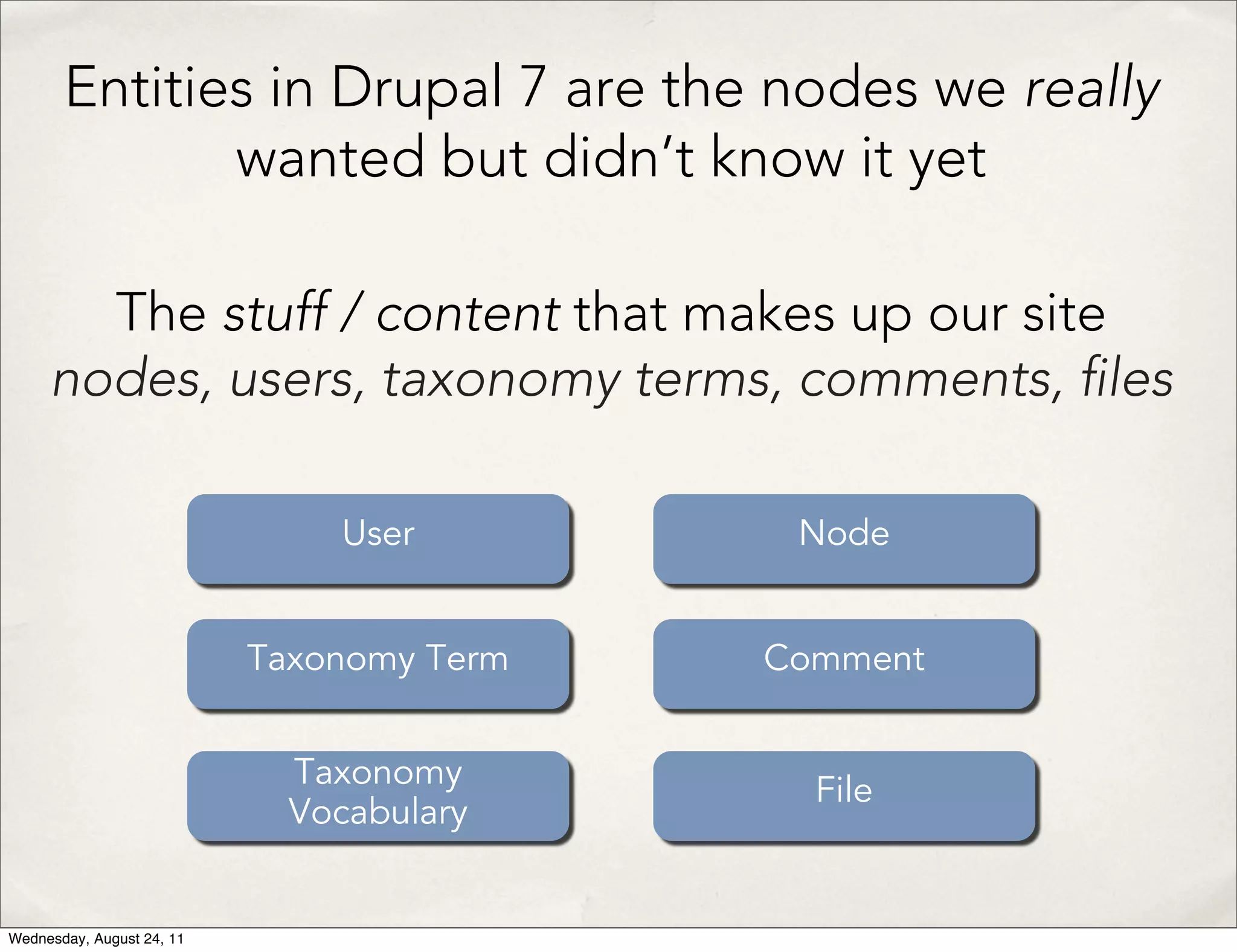
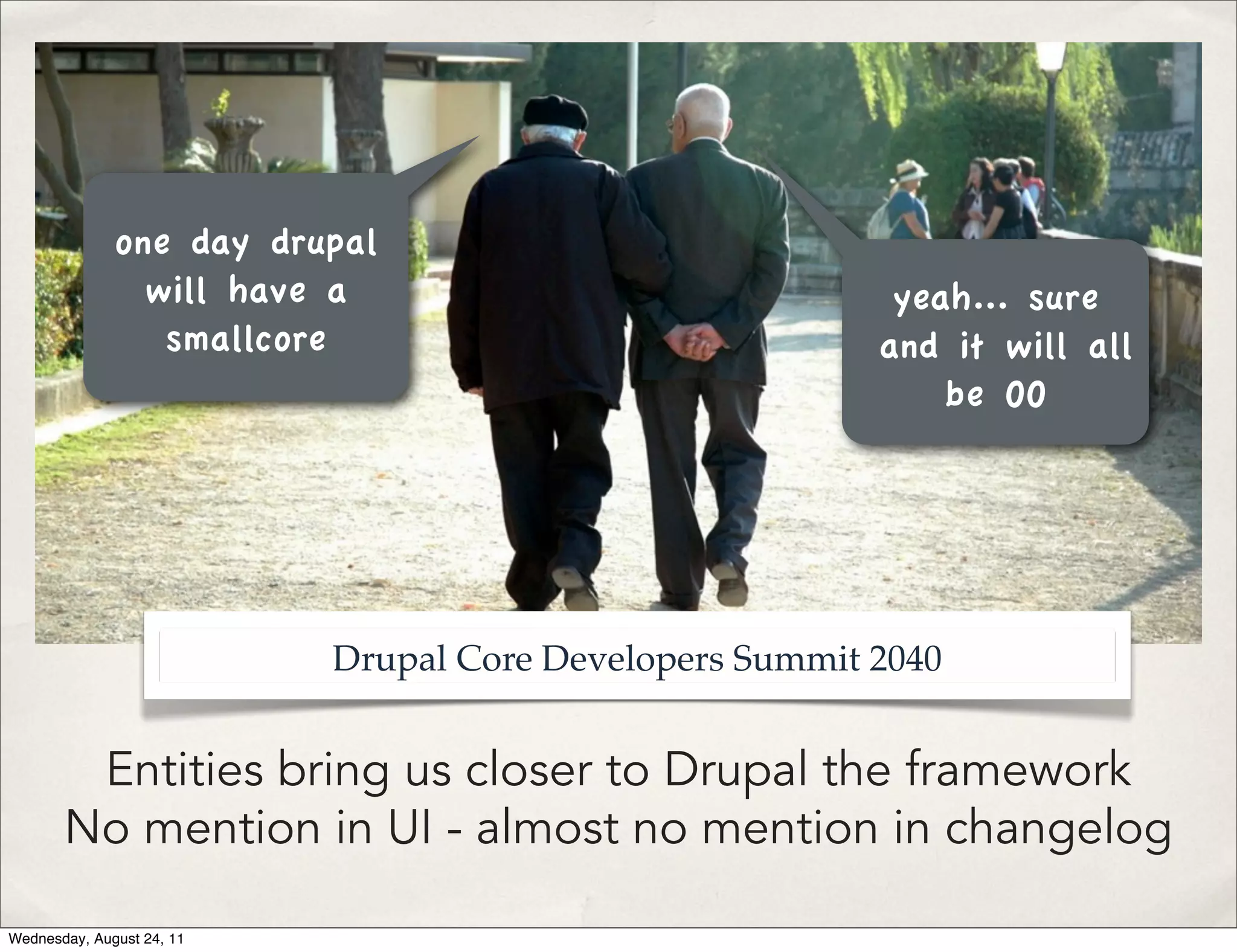
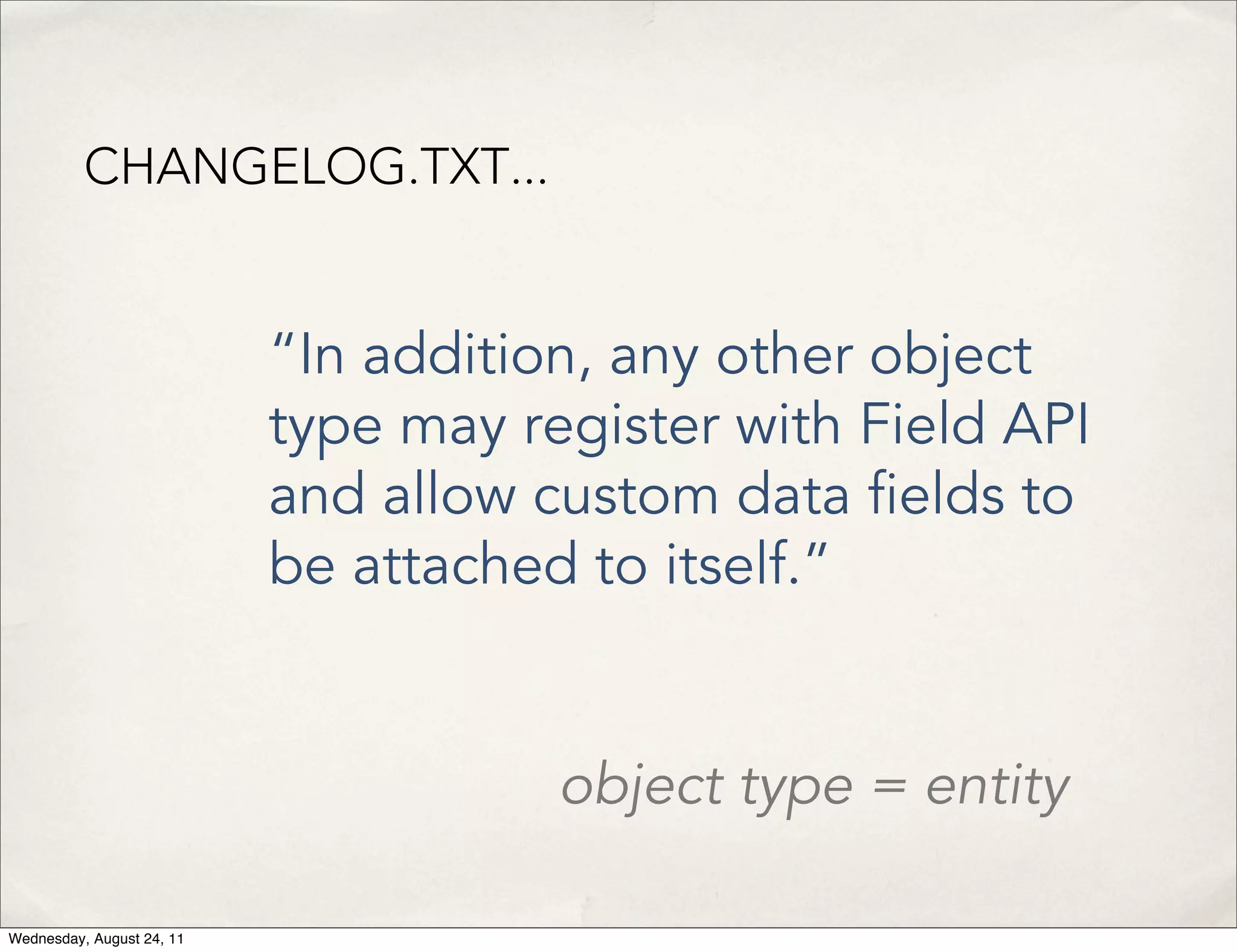
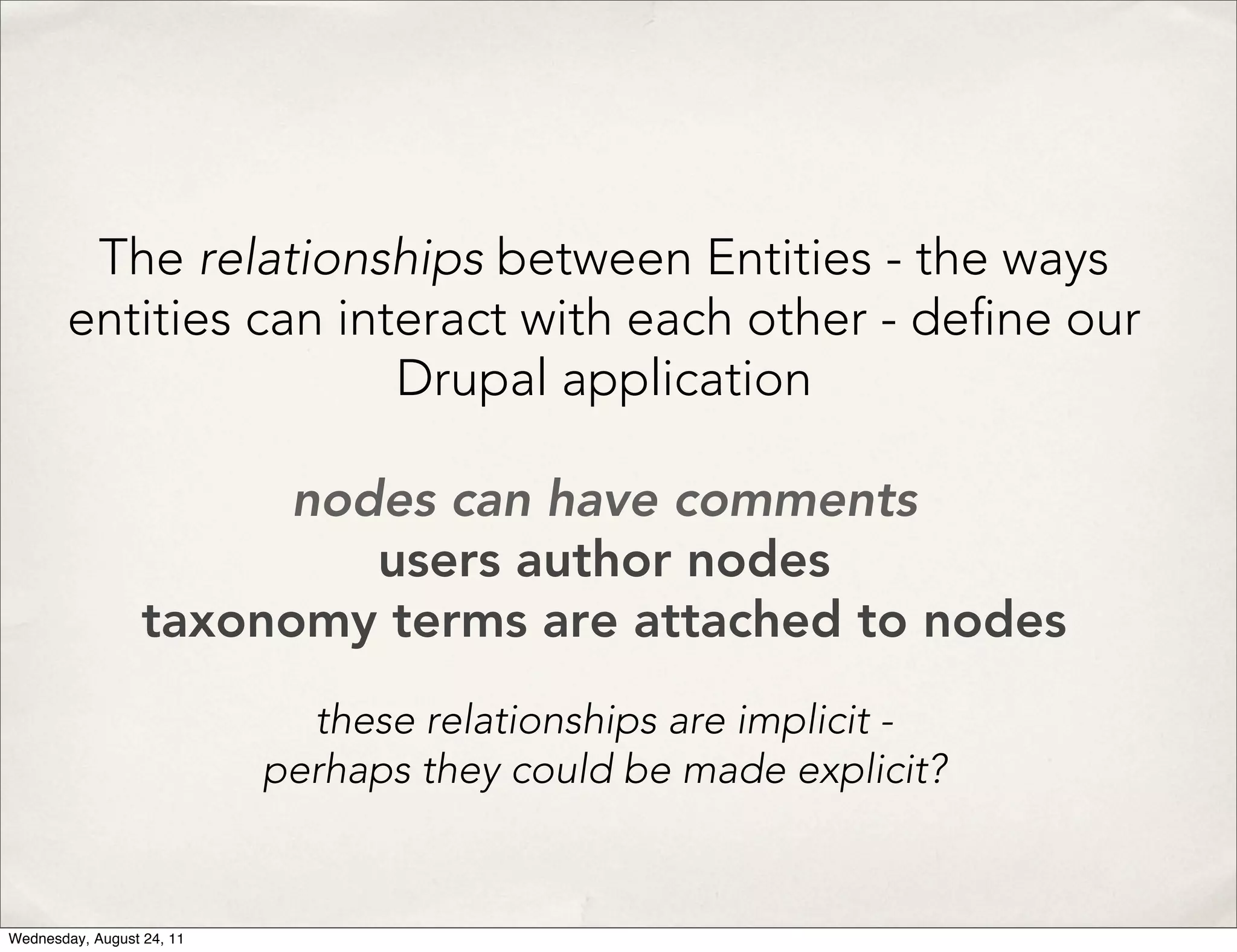
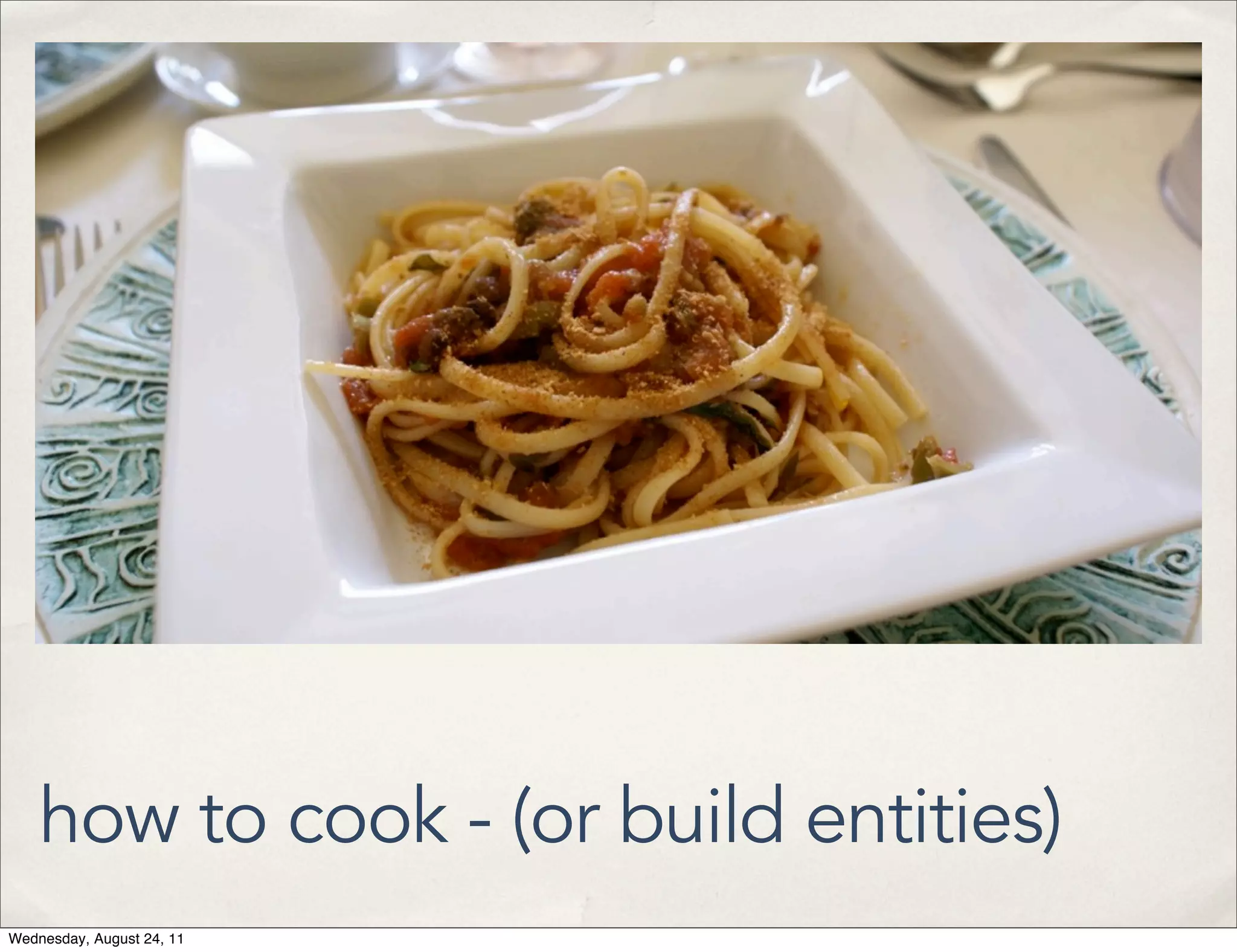
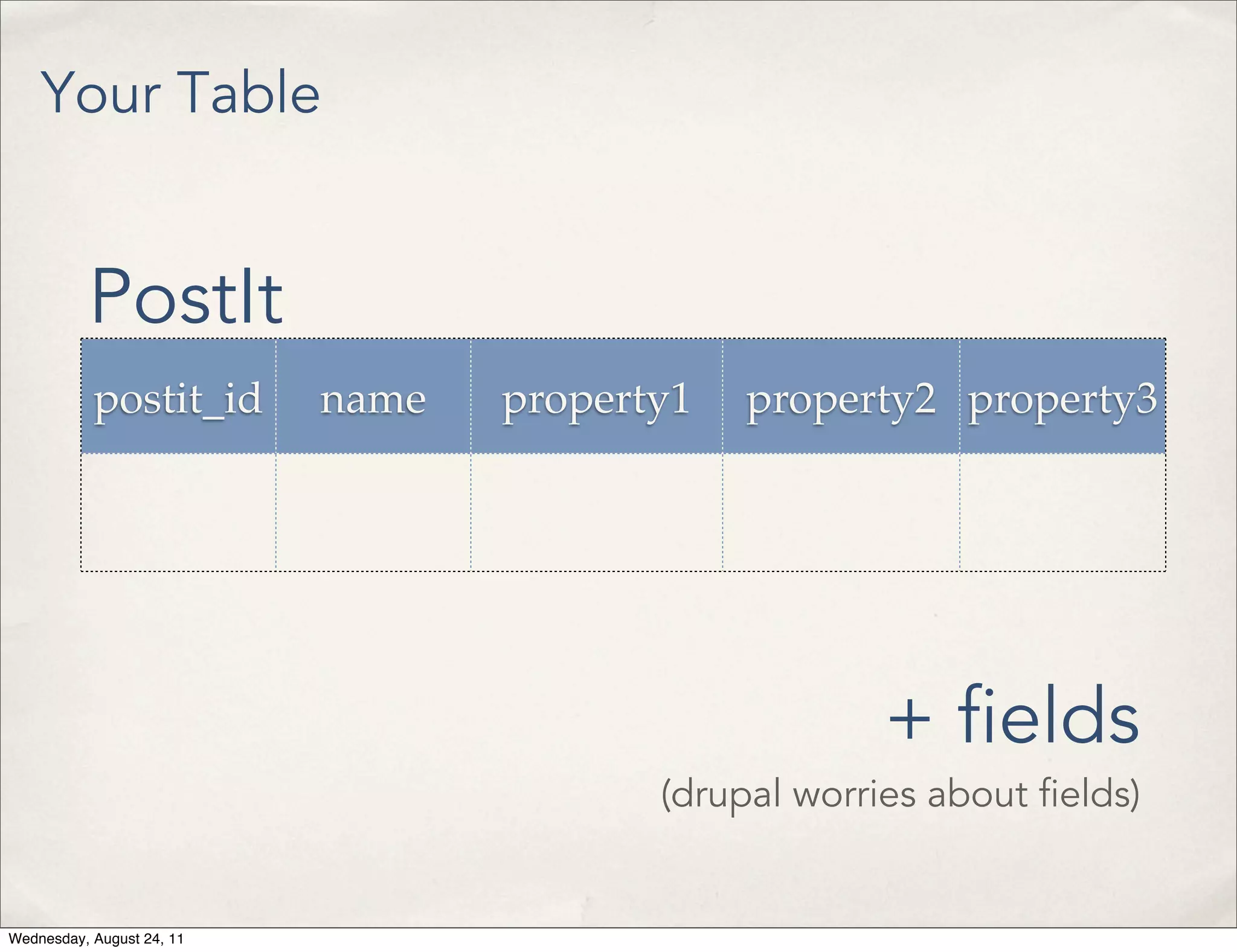
![you de ne an entity via a hook_entity_info (big array!): function postit_entity_info(){ $postit_info['postit'] = array( 'label' => t('PostIt Note'), 'controller class' => 'PostItController', 'base table' => 'postit', 'uri callback' => 'postit_uri', 'fieldable' => TRUE, 'entity keys' => array( 'id' => 'pid', ), 'static cache' => TRUE, 'bundles' => array( 'postit'=> array( 'label' => 'PostIt', 'admin' => array( 'path' => 'admin/structure/postit/manage', 'access arguments' => array('administer postits'), ), ), ), 'view modes' => array( 'full' => array( 'label' => t('Full PostIt'), 'custom settings' => FALSE, ), ) ); return $postit_info; } Wednesday, August 24, 11](https://image.slidesharecdn.com/entities-session-drupalcon-110823185055-phpapp02/75/Drupal-Entities-Emerging-Patterns-of-Usage-22-2048.jpg)
![function postit_entity_info(){ $postit_info['postit'] = array( 'label' => t('PostIt Note'), 'controller class' => 'PostItController', 'base table' => 'postit', 'uri callback' => 'postit_uri', 'fieldable' => TRUE, You can provide you own controller class - typically 'entity keys' => array( 'id' => 'pid', ), extending the default DrupalDefaultEntityController 'static cache' => TRUE, which worries about caching, querying, revisioning and 'bundles' => array( 'postit'=> array( attaching elds to entities 'label' => 'PostIt', 'admin' => array( 'path' => 'admin/structure/postit/manage', 'access arguments' => array('administer postits'), ), ), ), 'view modes' => array( 'full' => array( 'label' => t('Full PostIt'), 'custom settings' => FALSE, ), ) ); return $postit_info; } Wednesday, August 24, 11](https://image.slidesharecdn.com/entities-session-drupalcon-110823185055-phpapp02/75/Drupal-Entities-Emerging-Patterns-of-Usage-23-2048.jpg)
![function postit_entity_info(){ $postit_info['postit'] = array( 'label' => t('PostIt Note'), 'controller class' => 'PostItController', 'base table' => 'postit', 'uri callback' => 'postit_uri', 'fieldable' => TRUE, 'entity keys' => array( 'id' => 'pid', ), 'static cache' => TRUE, base table = where our main entity data lives 'bundles' => array( uri callback = where to look up - view entities 'postit'=> array( 'label' => 'PostIt', eldable = are elds to be attached to our entity 'admin' => array( 'path' => 'admin/structure/postit/manage', 'access arguments' => array('administer postits'), ), ), ), 'view modes' => array( 'full' => array( 'label' => t('Full PostIt'), 'custom settings' => FALSE, ), ) ); return $postit_info; } Wednesday, August 24, 11](https://image.slidesharecdn.com/entities-session-drupalcon-110823185055-phpapp02/75/Drupal-Entities-Emerging-Patterns-of-Usage-24-2048.jpg)
![function postit_entity_info(){ $postit_info['postit'] = array( 'label' => t('PostIt Note'), 'controller class' => 'PostItController', 'base table' => 'postit', 'uri callback' => 'postit_uri', 'fieldable' => TRUE, 'entity keys' => array( 'id' => 'pid', ), 'static cache' => TRUE, 'bundles' => array( 'postit'=> array( 'label' => 'PostIt', 'admin' => array( 'path' => 'admin/structure/postit/manage', 'access arguments' => array('administer postits'), ), ), ), 'view modes' => array( 'full' => array( 'label' => t('Full PostIt'), Bundle = Entity + Con guration + Fields 'custom settings' => FALSE, ), ) 1 entity (Node) can have many bundles (Article, Page) ); return $postit_info; } Wednesday, August 24, 11](https://image.slidesharecdn.com/entities-session-drupalcon-110823185055-phpapp02/75/Drupal-Entities-Emerging-Patterns-of-Usage-25-2048.jpg)
